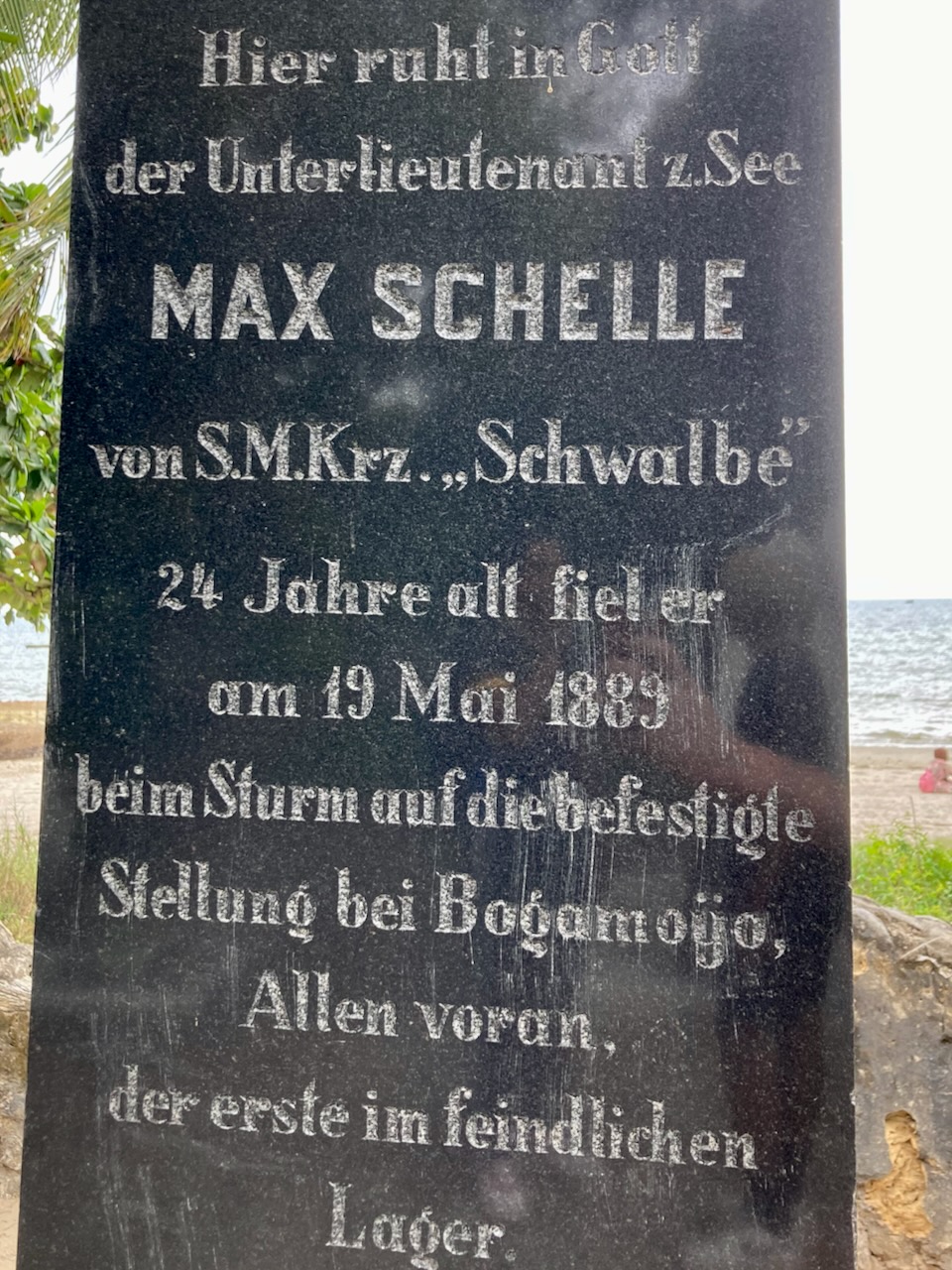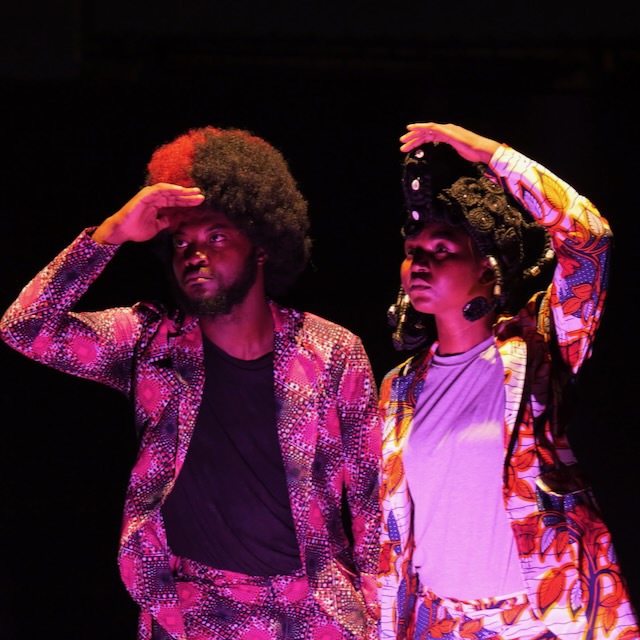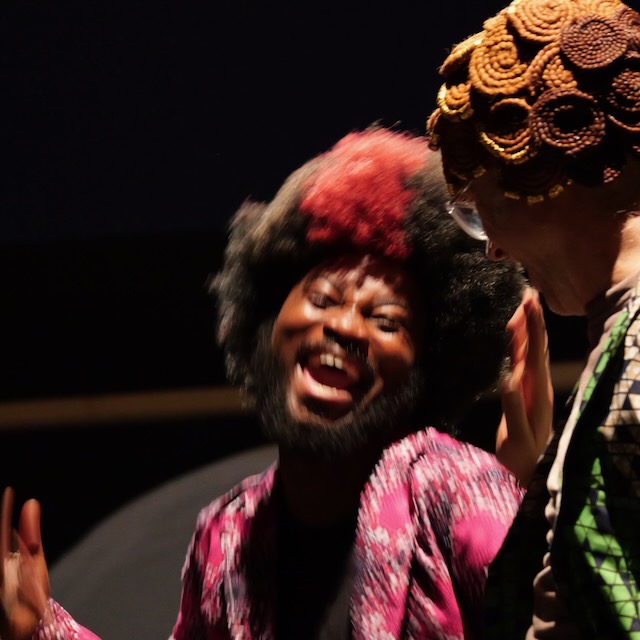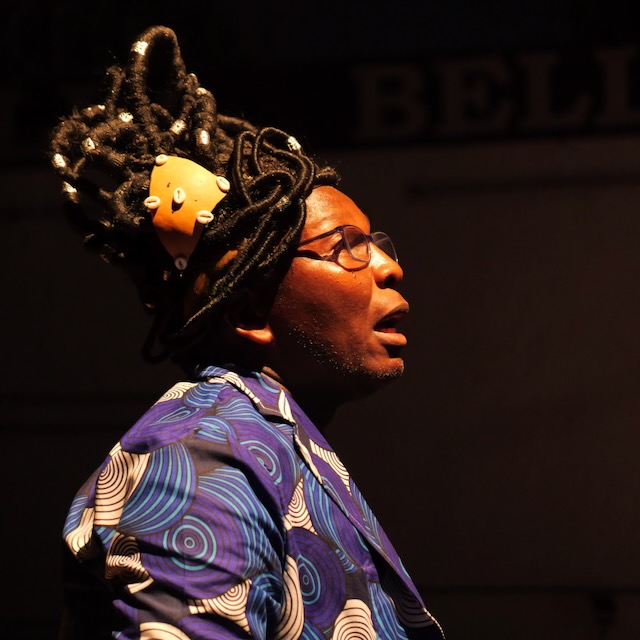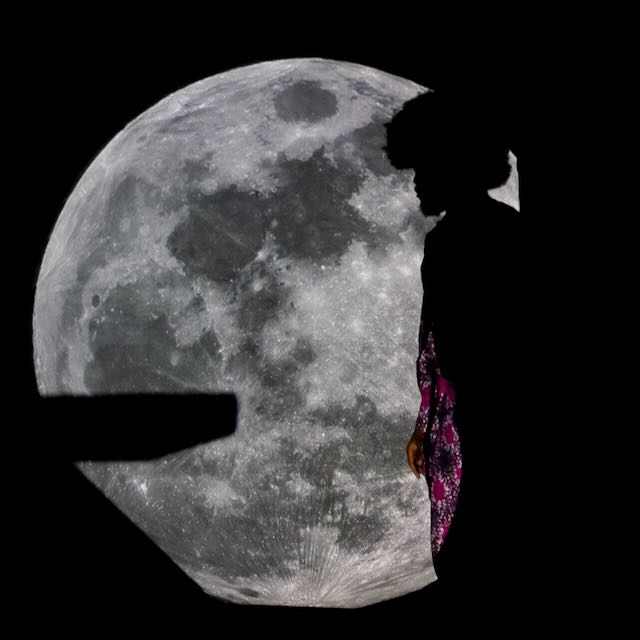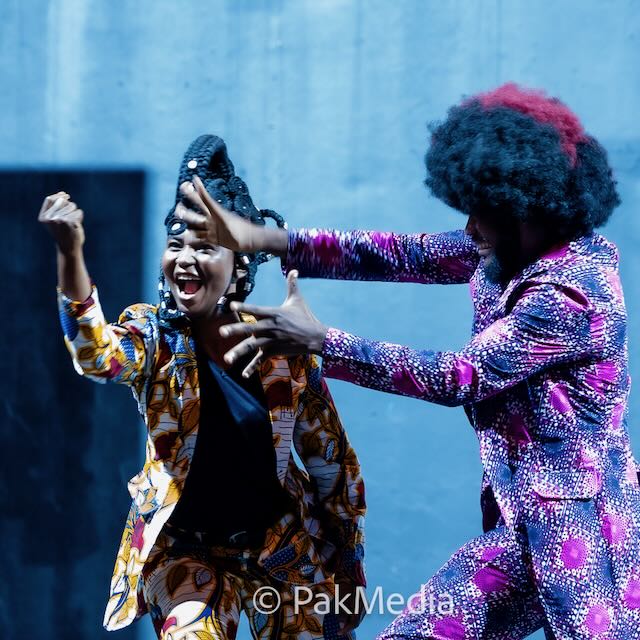Calendar
PREMIERE OF "HEAVY SHIT" ON 22 NOVEMBER 2025 AT 6 PM AT THE KUNGERKIEZTHEATER BERLIN BY THE ENSEMBLE DER ZERSTREUTEN.
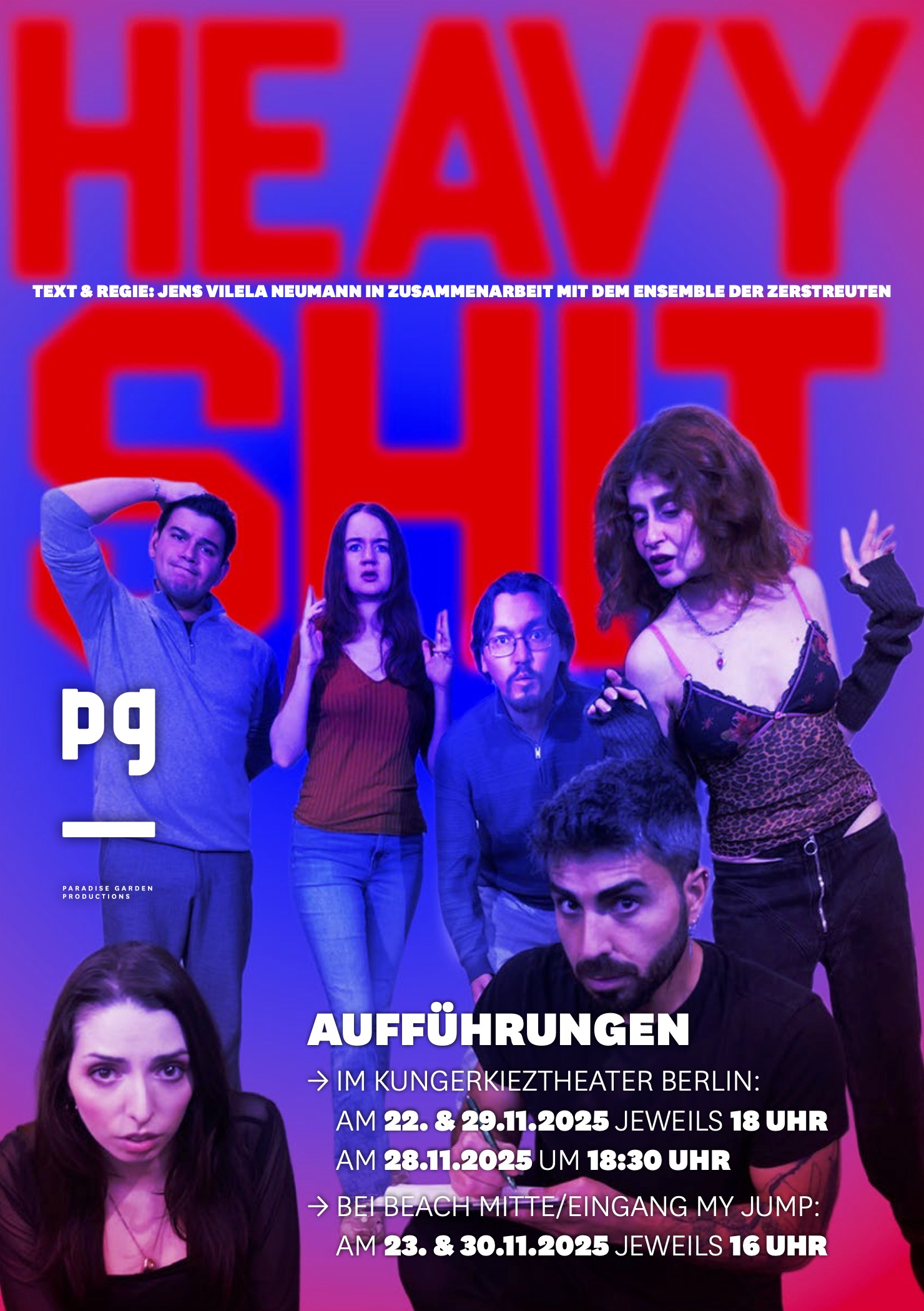
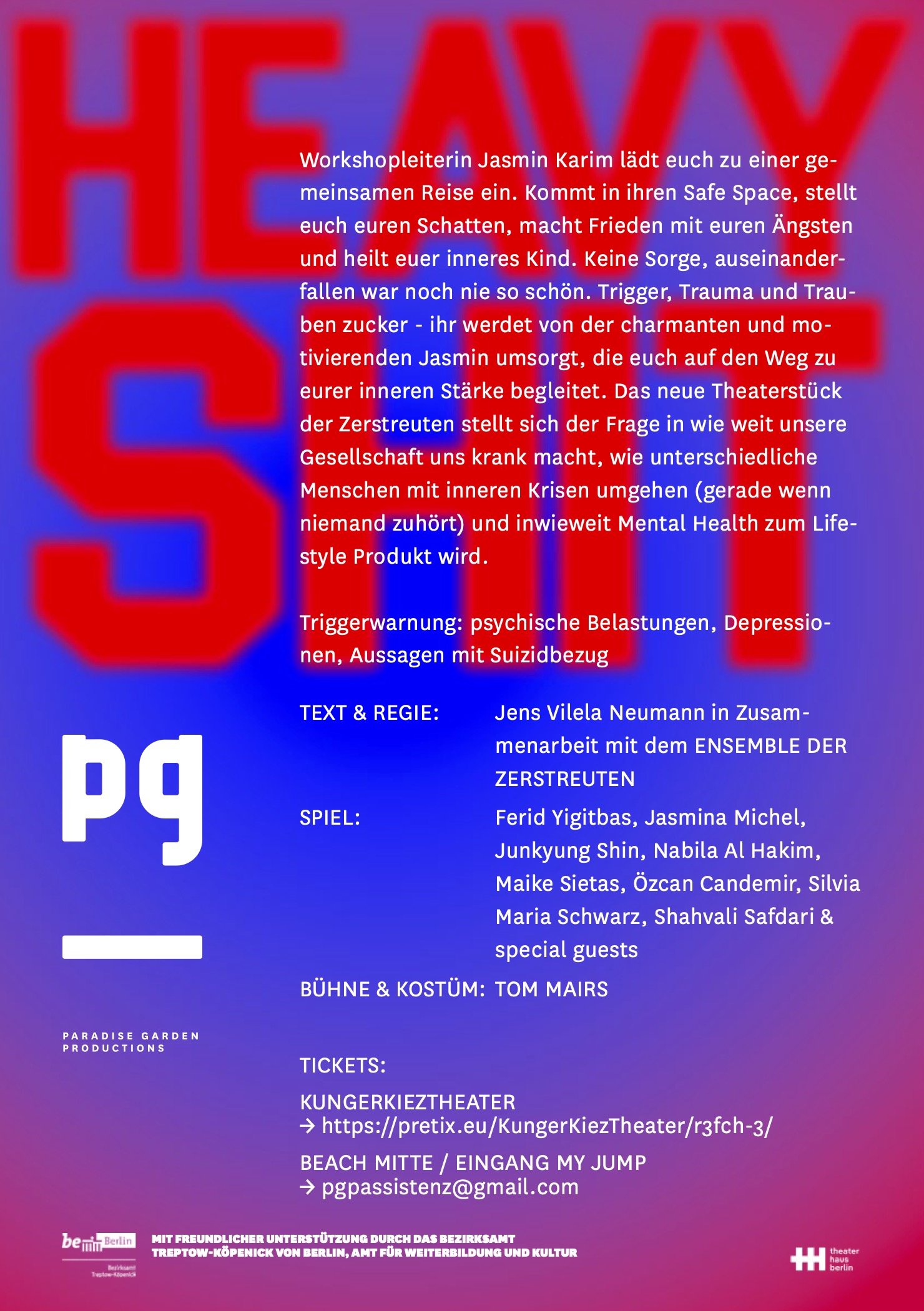
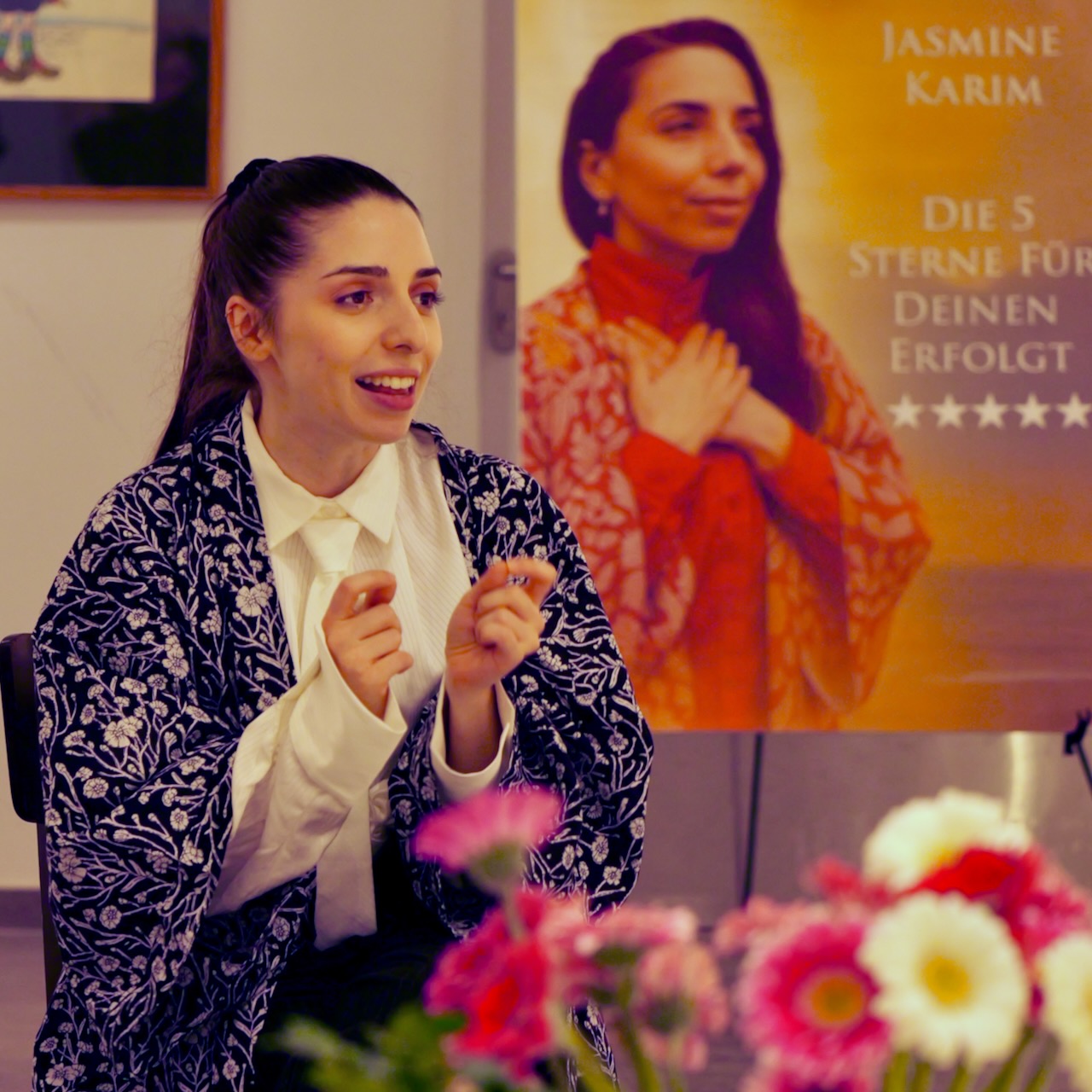
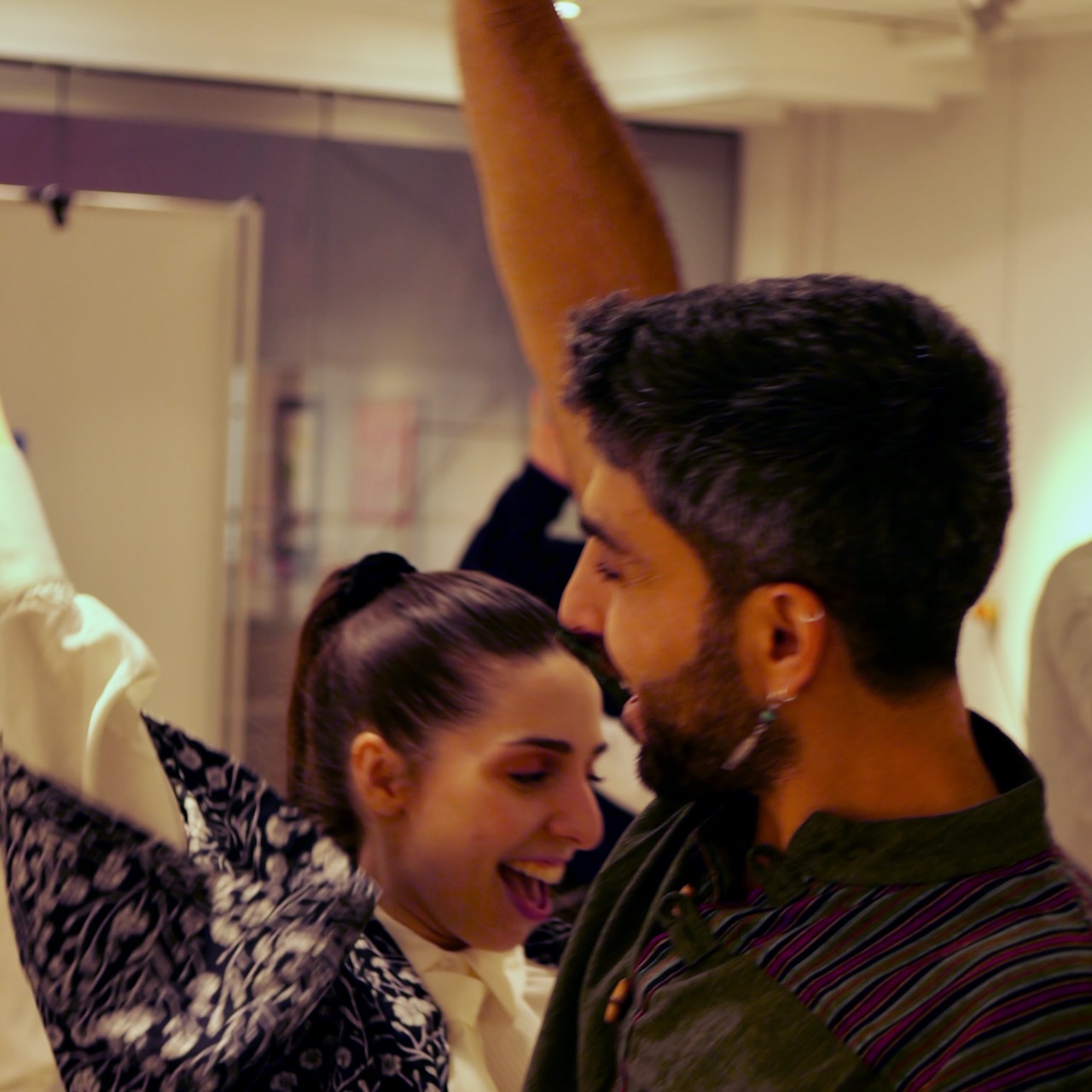
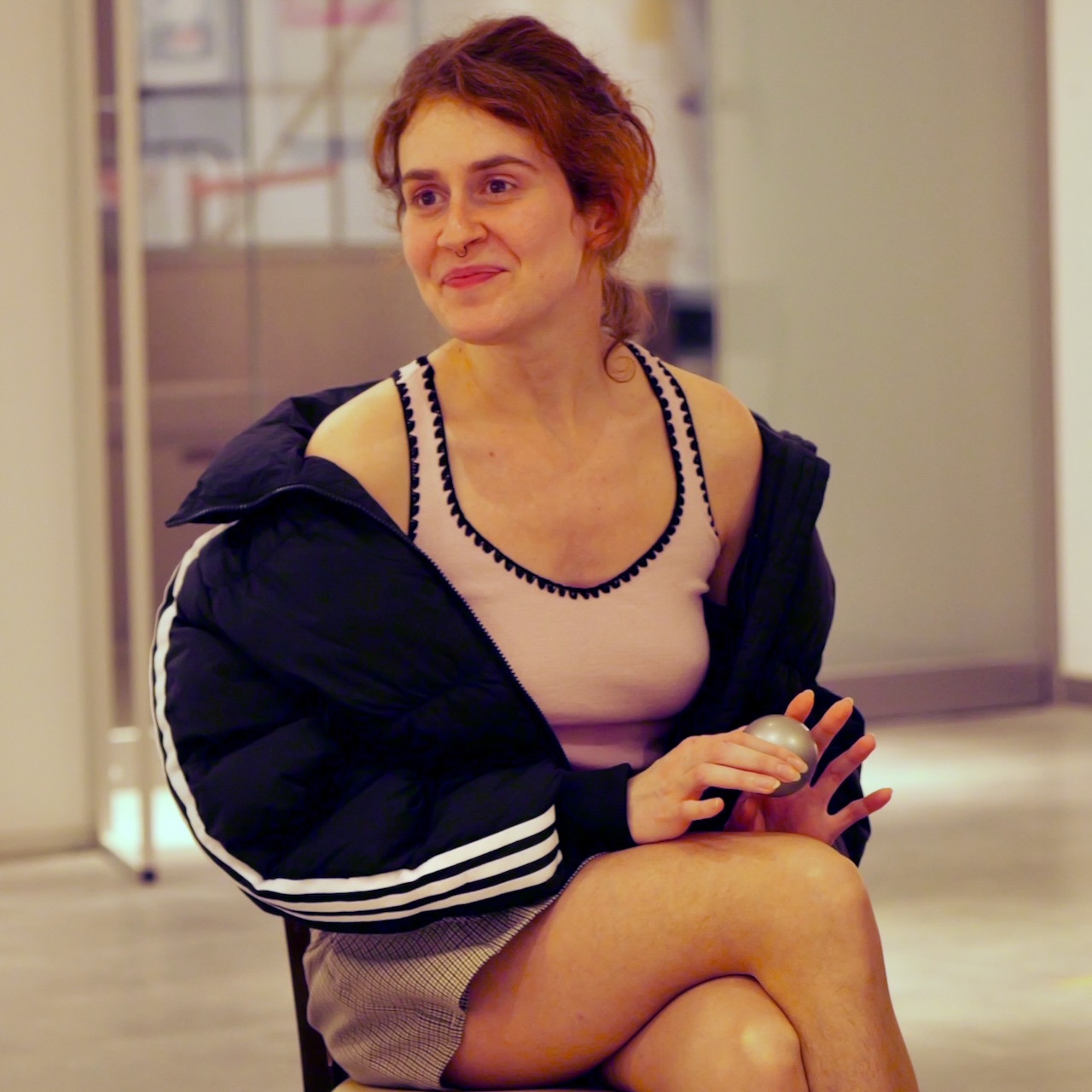
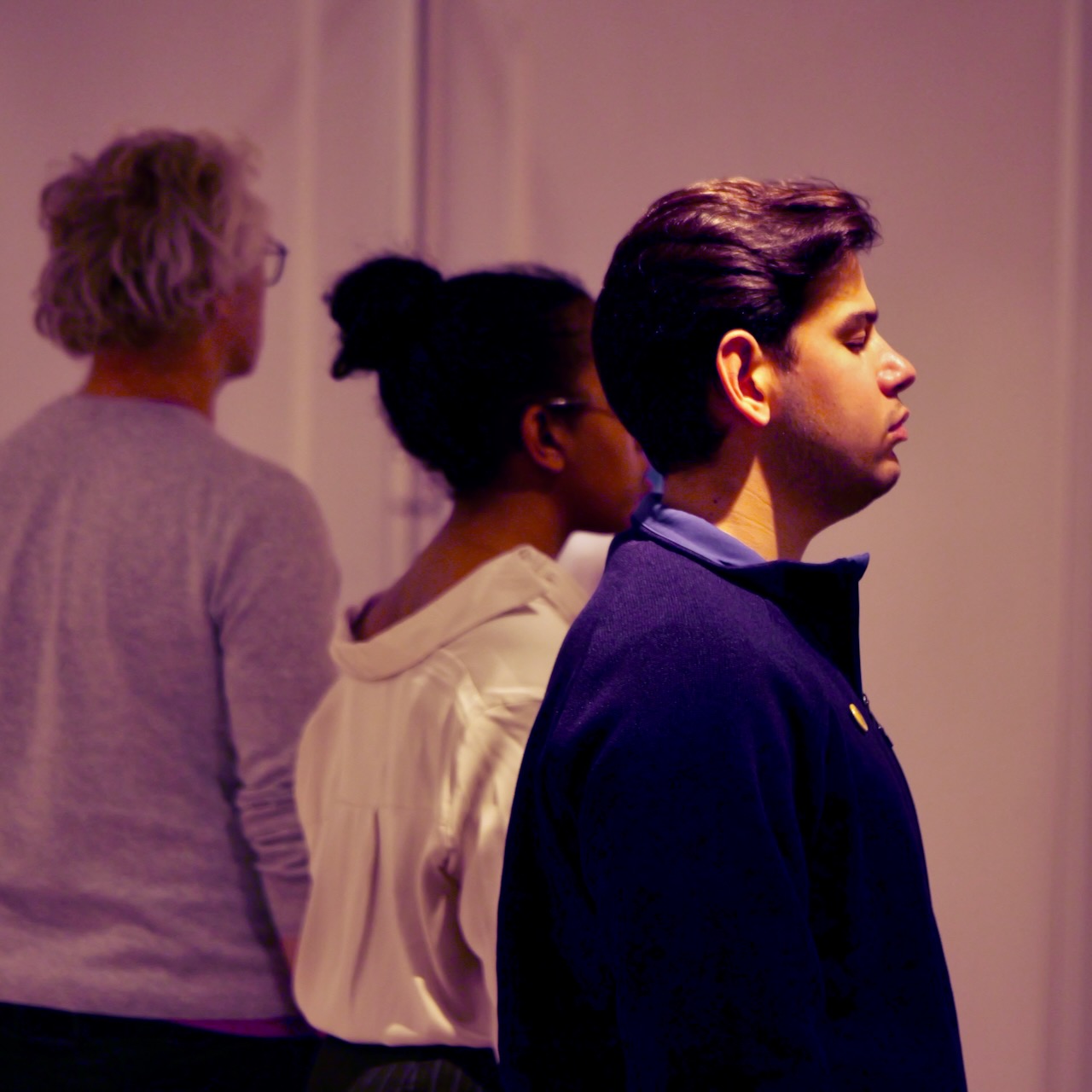
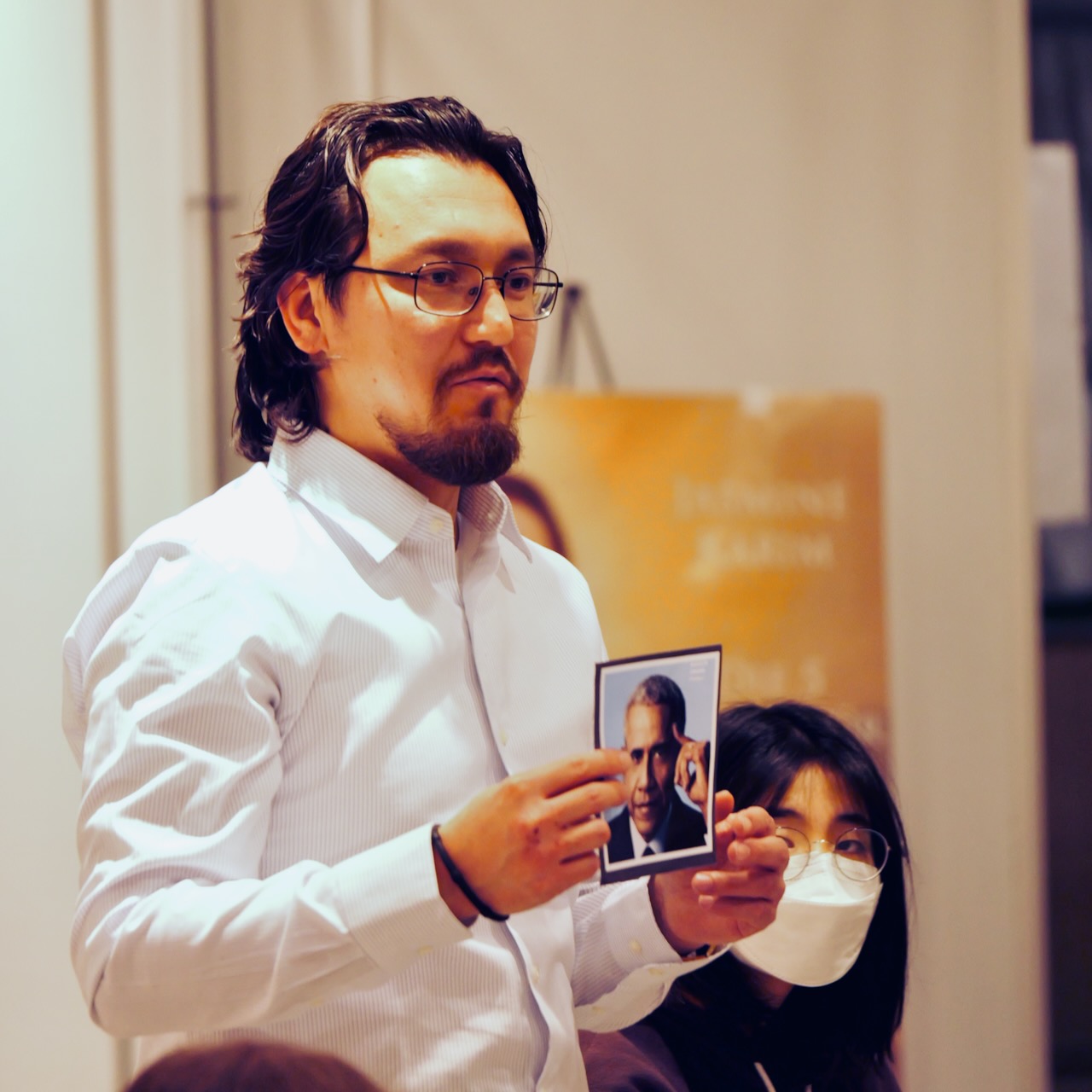
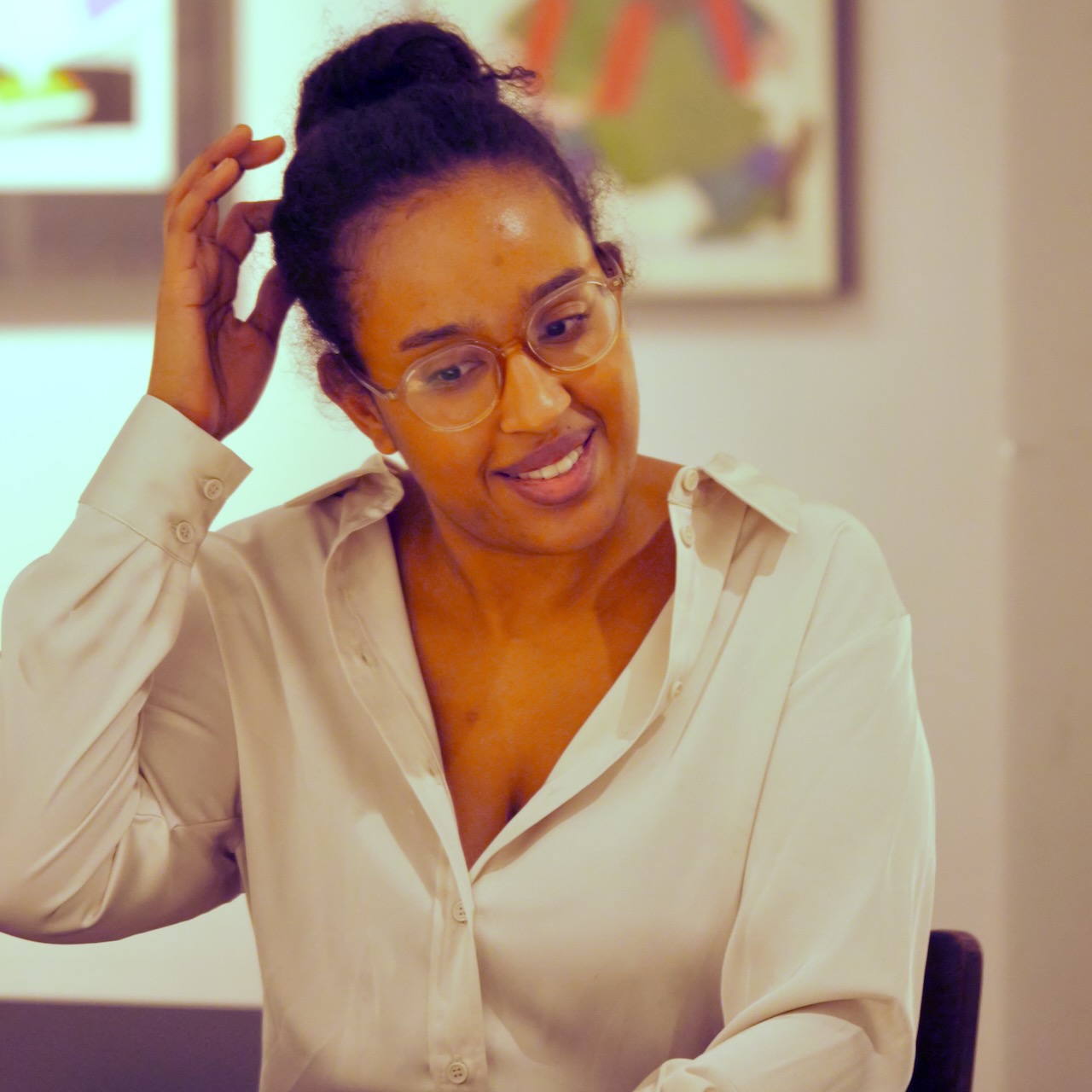
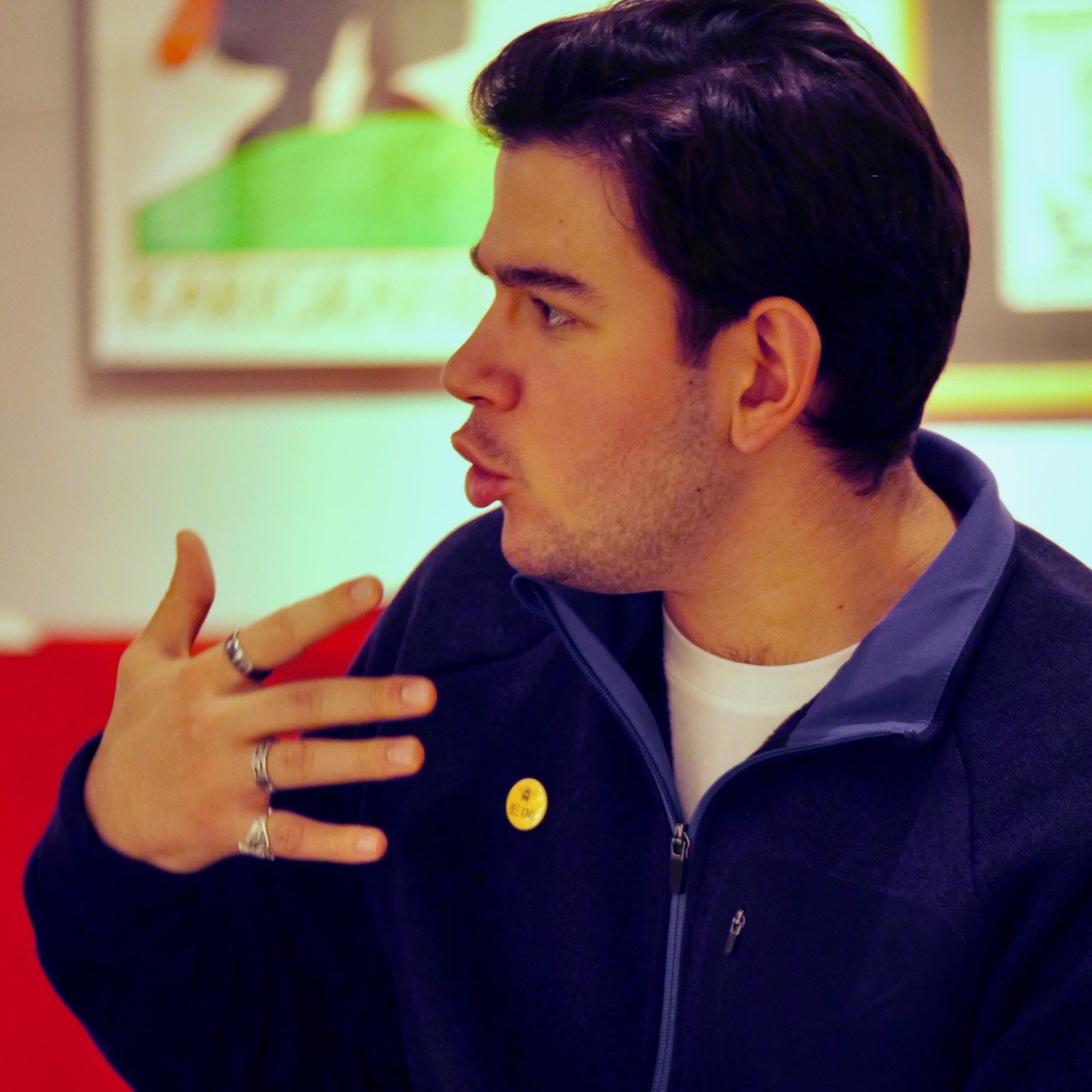
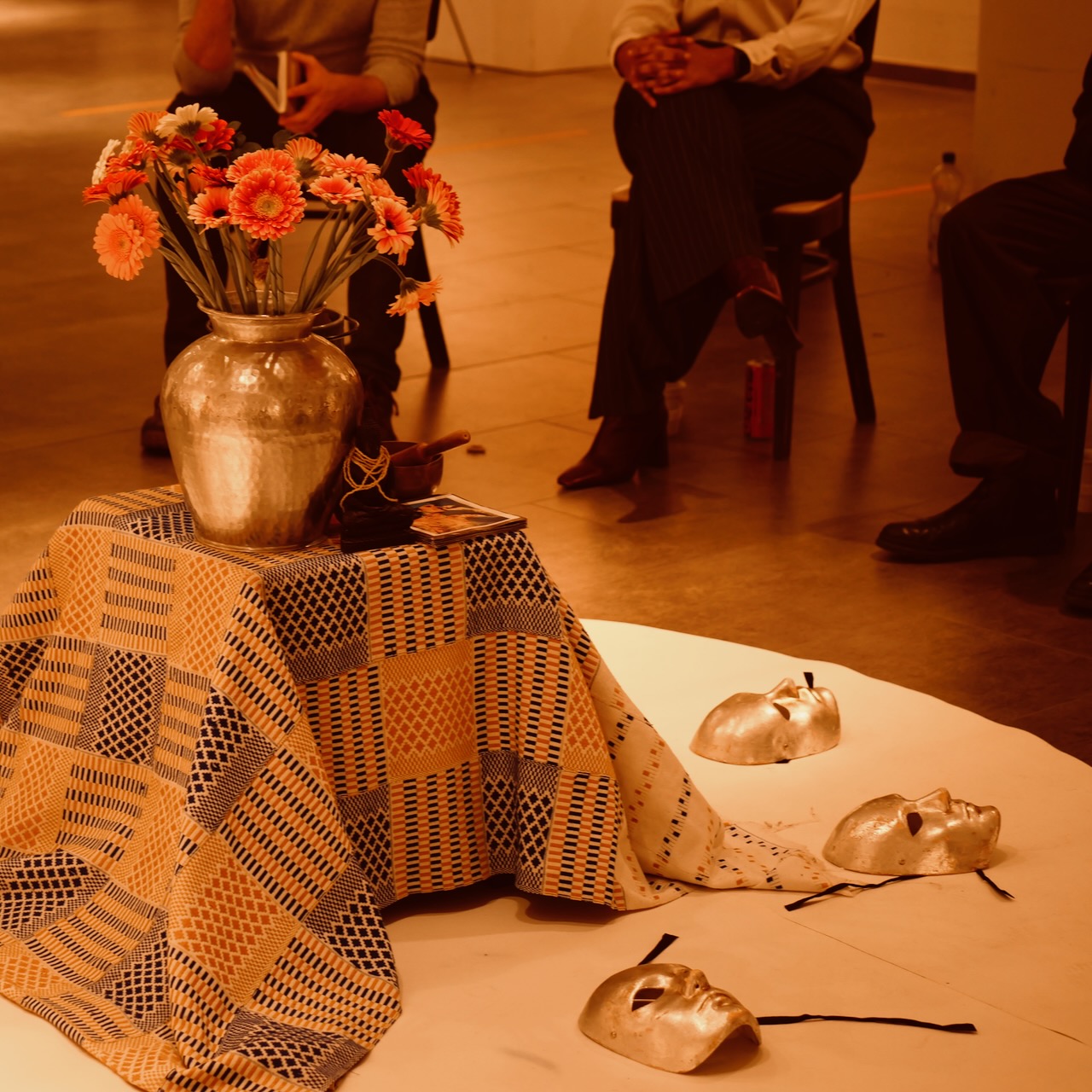
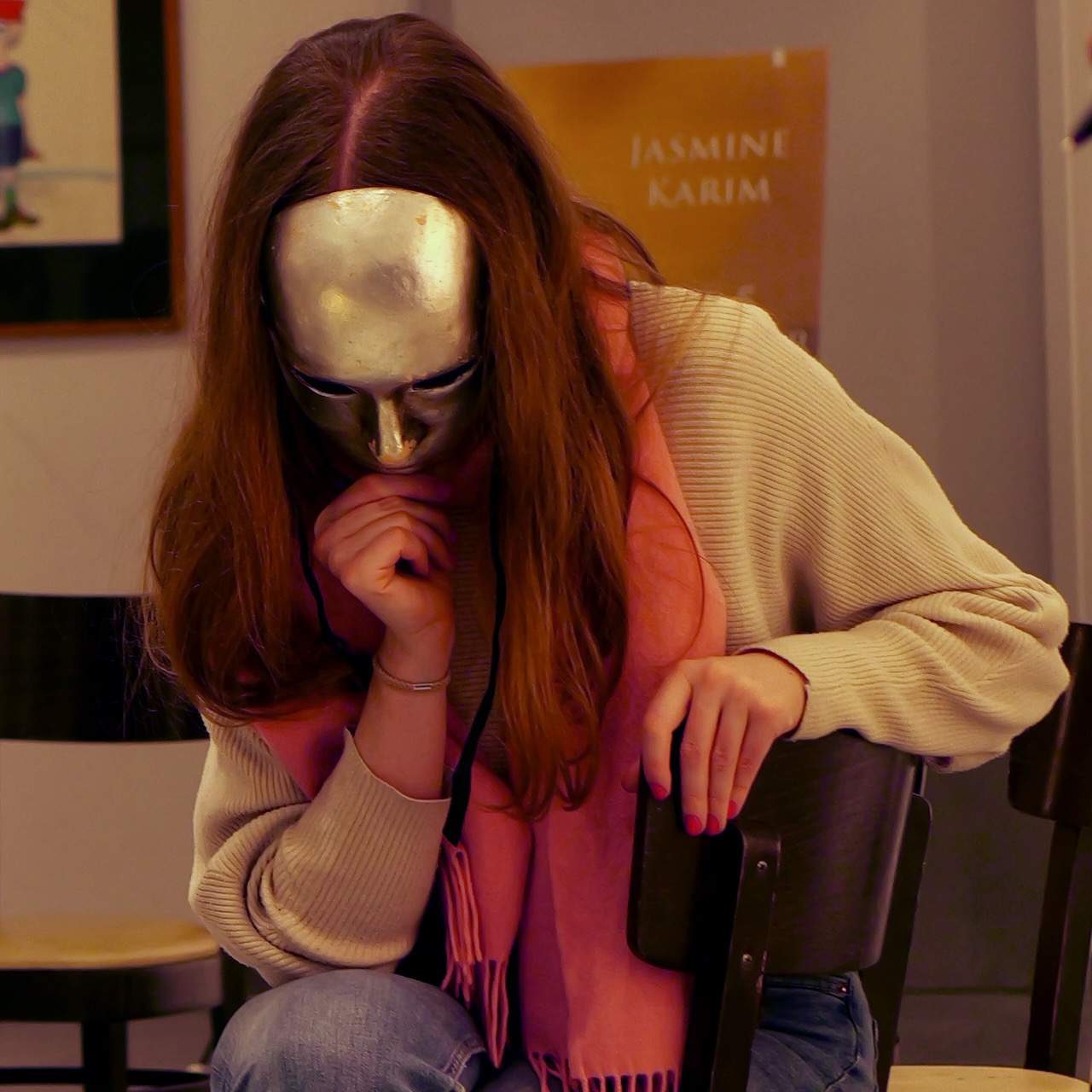
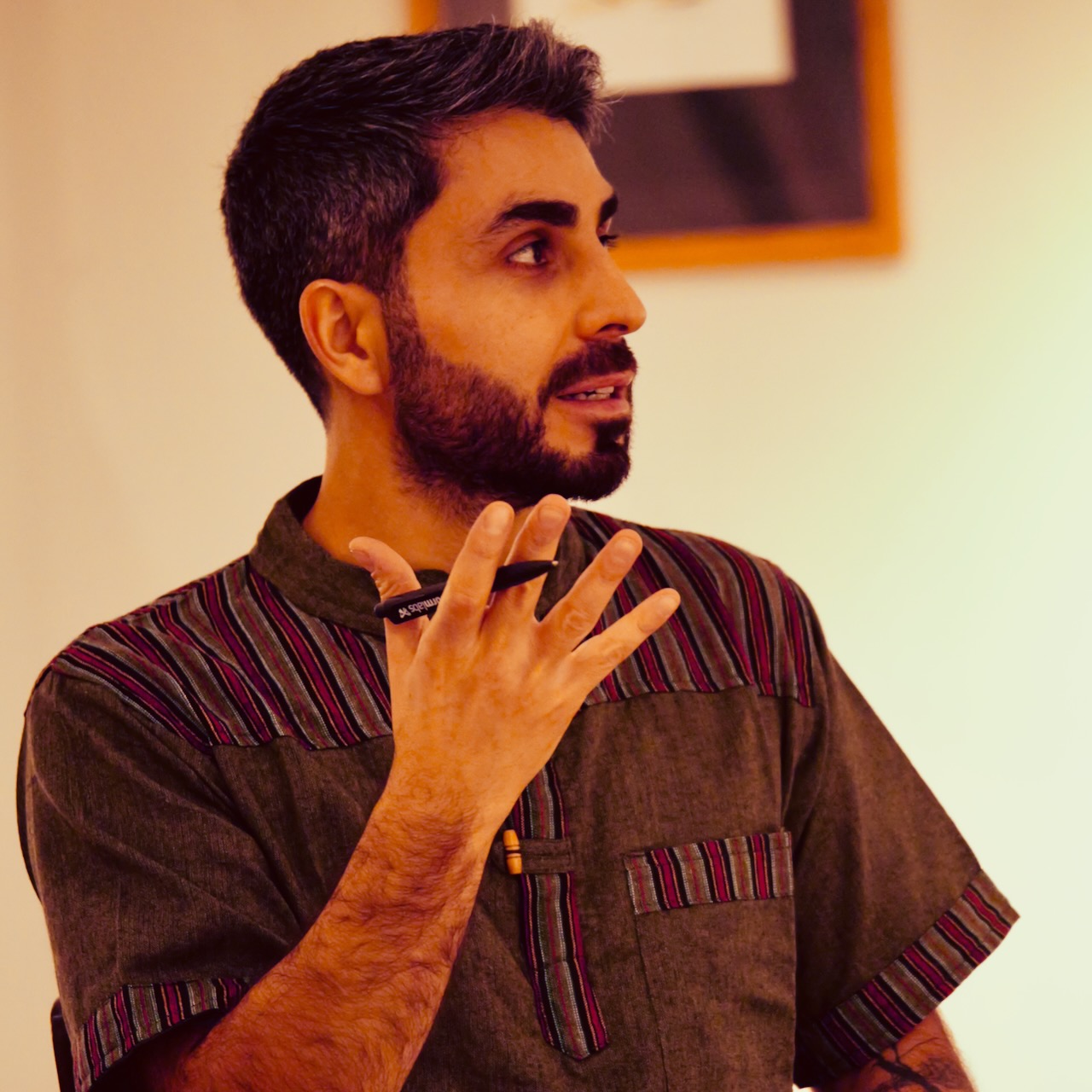
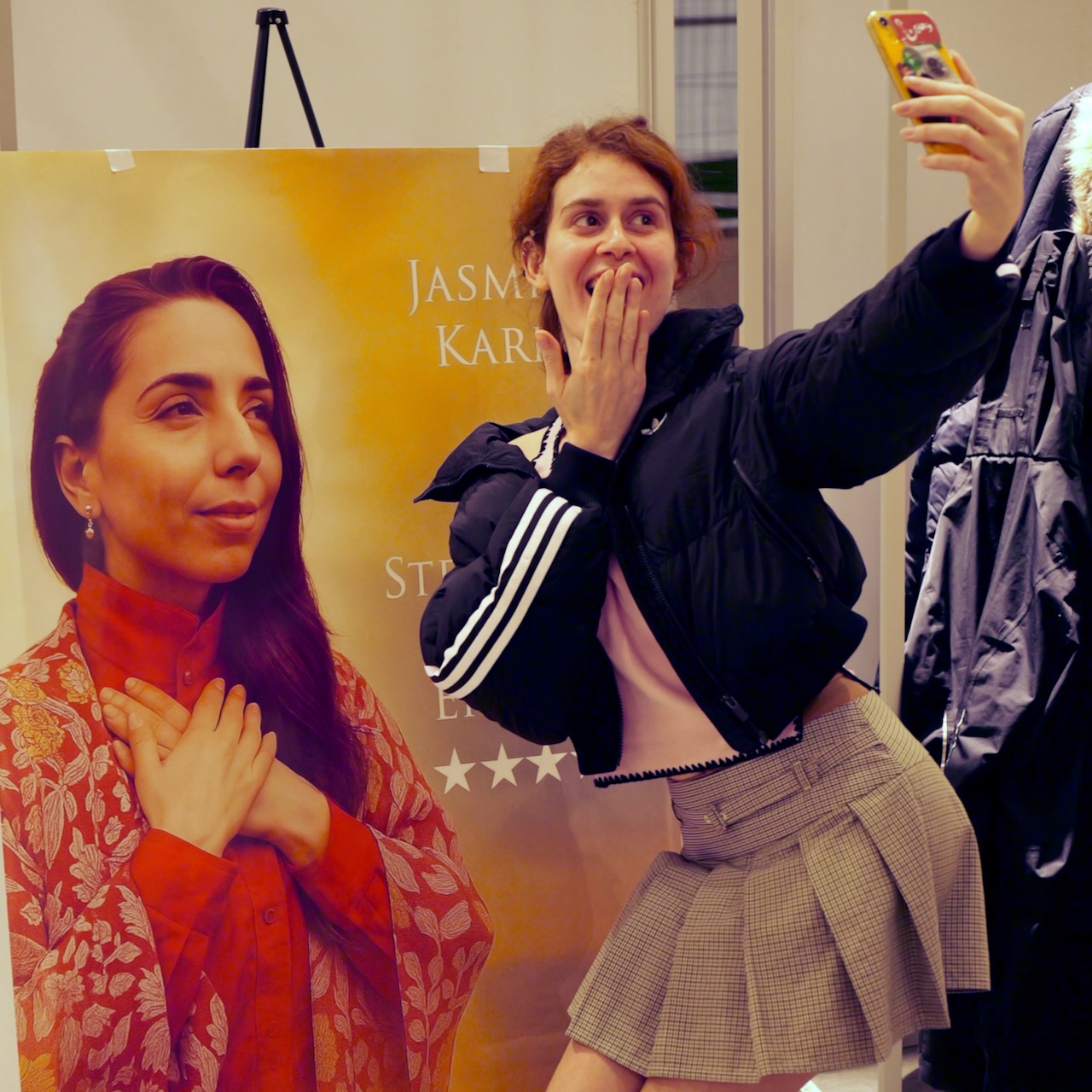
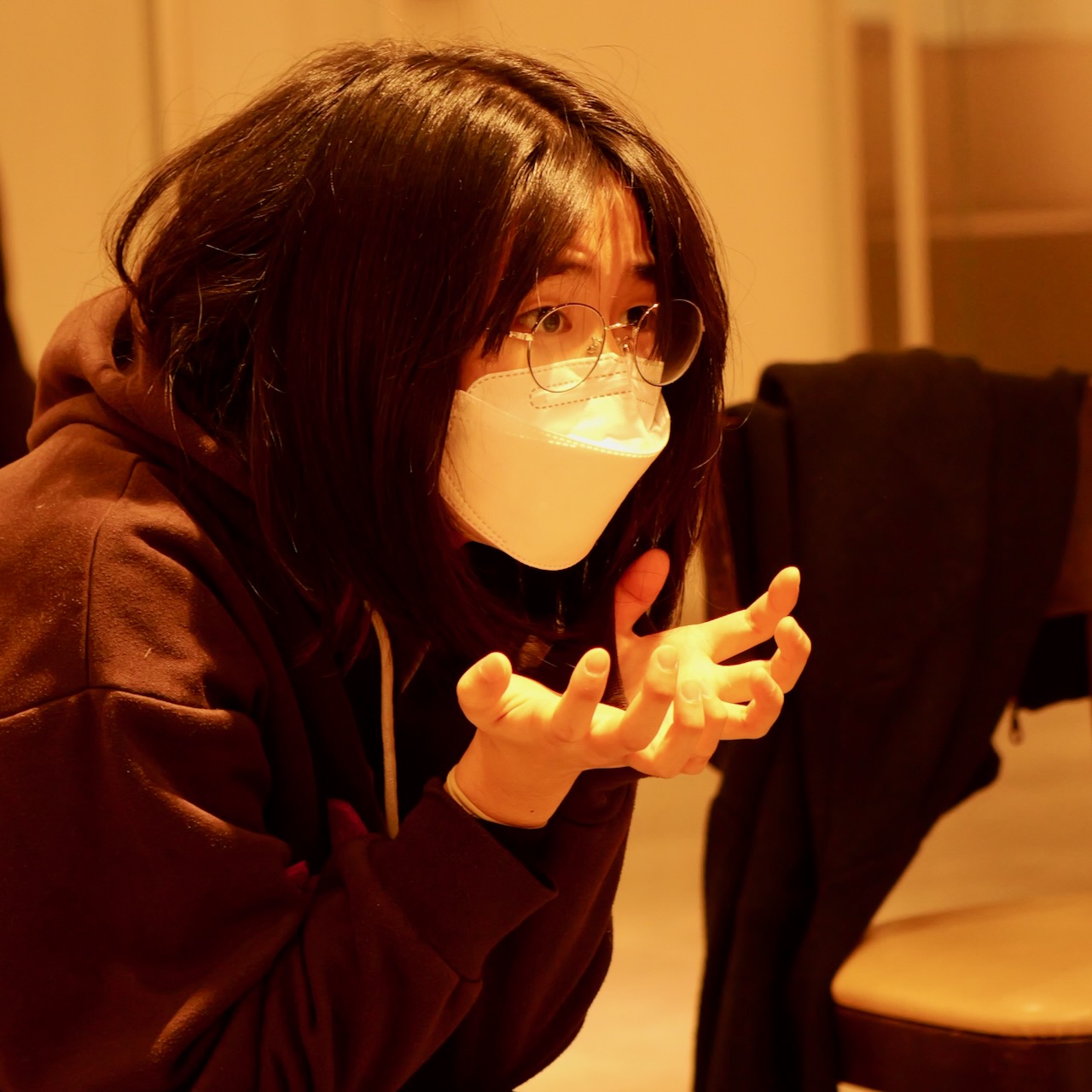
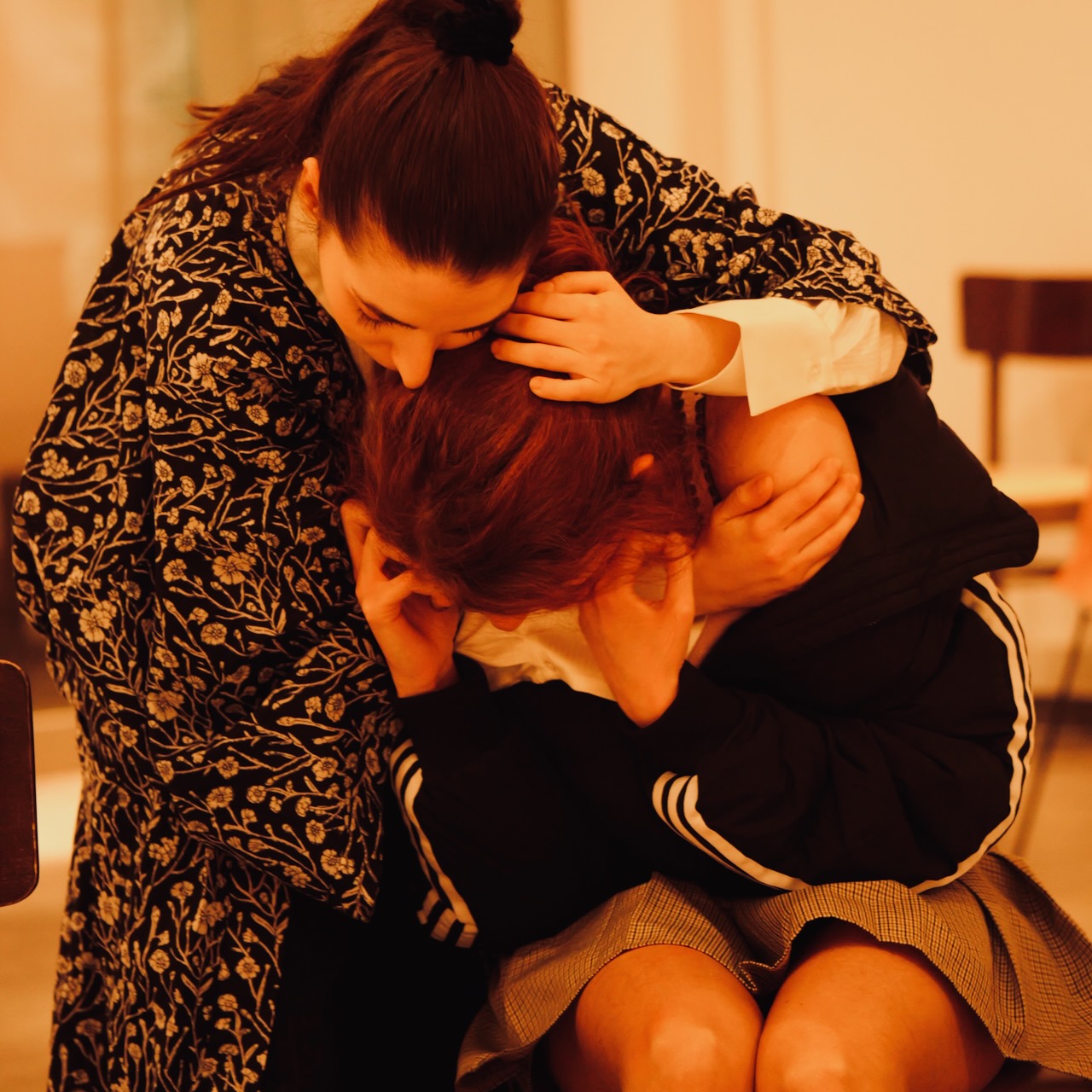
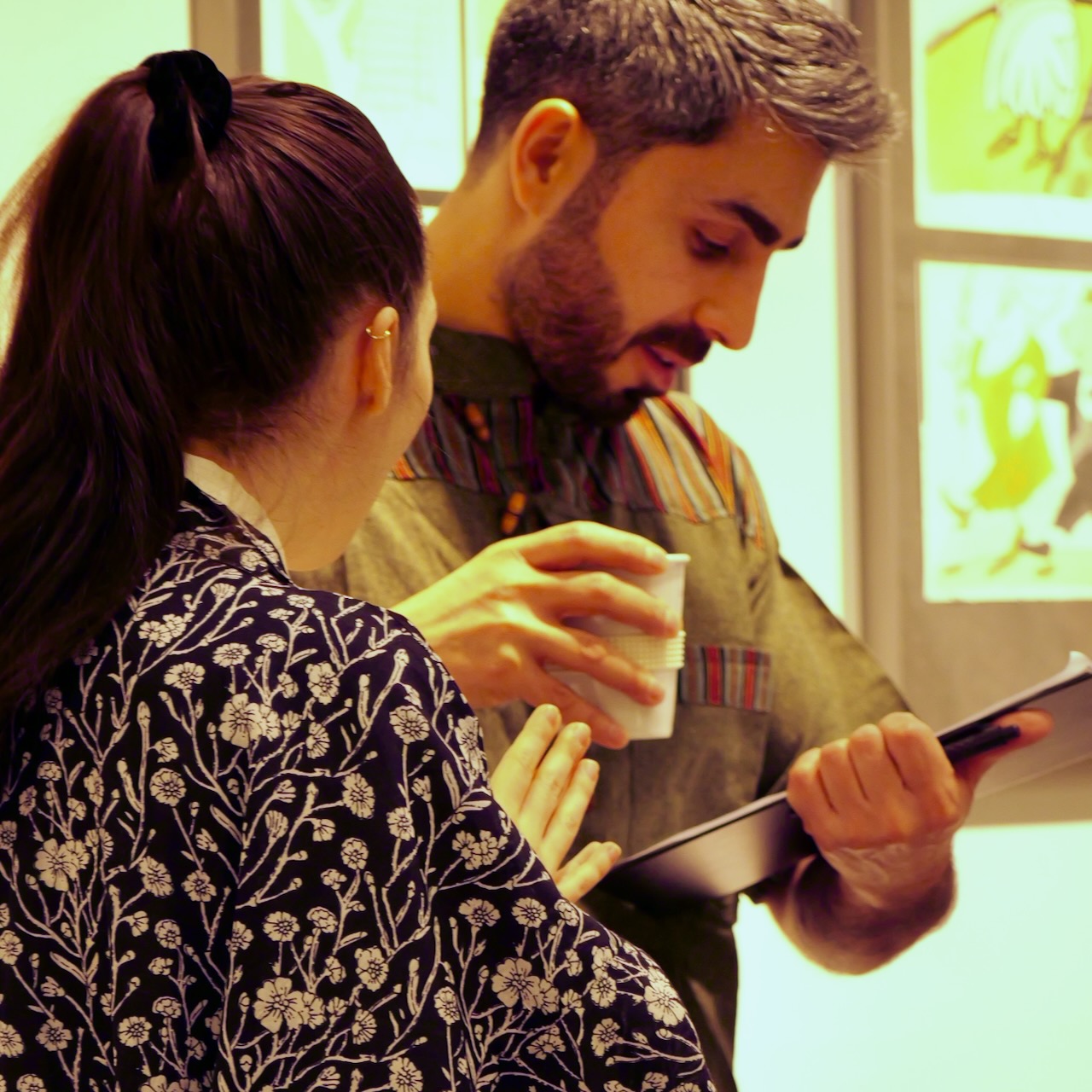
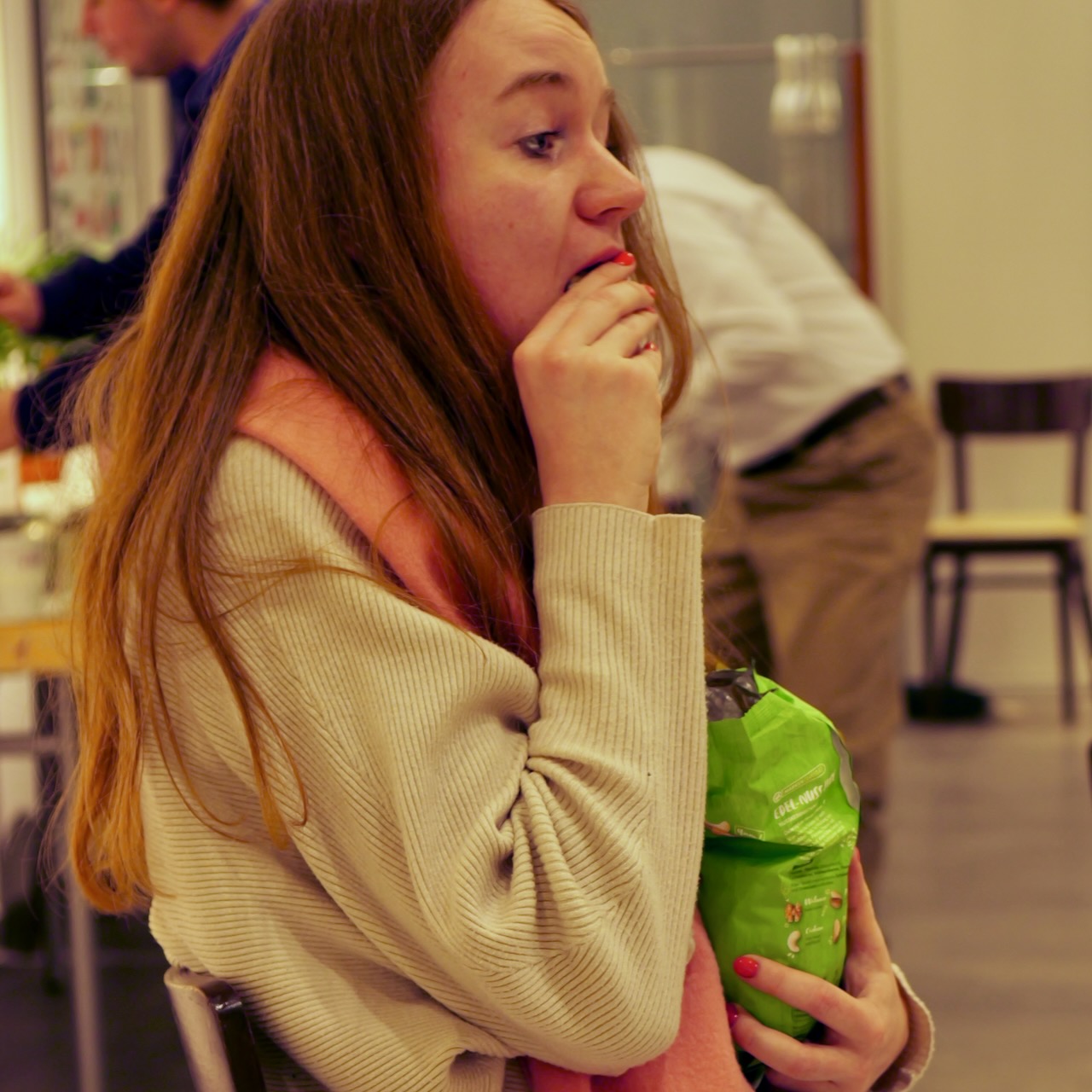
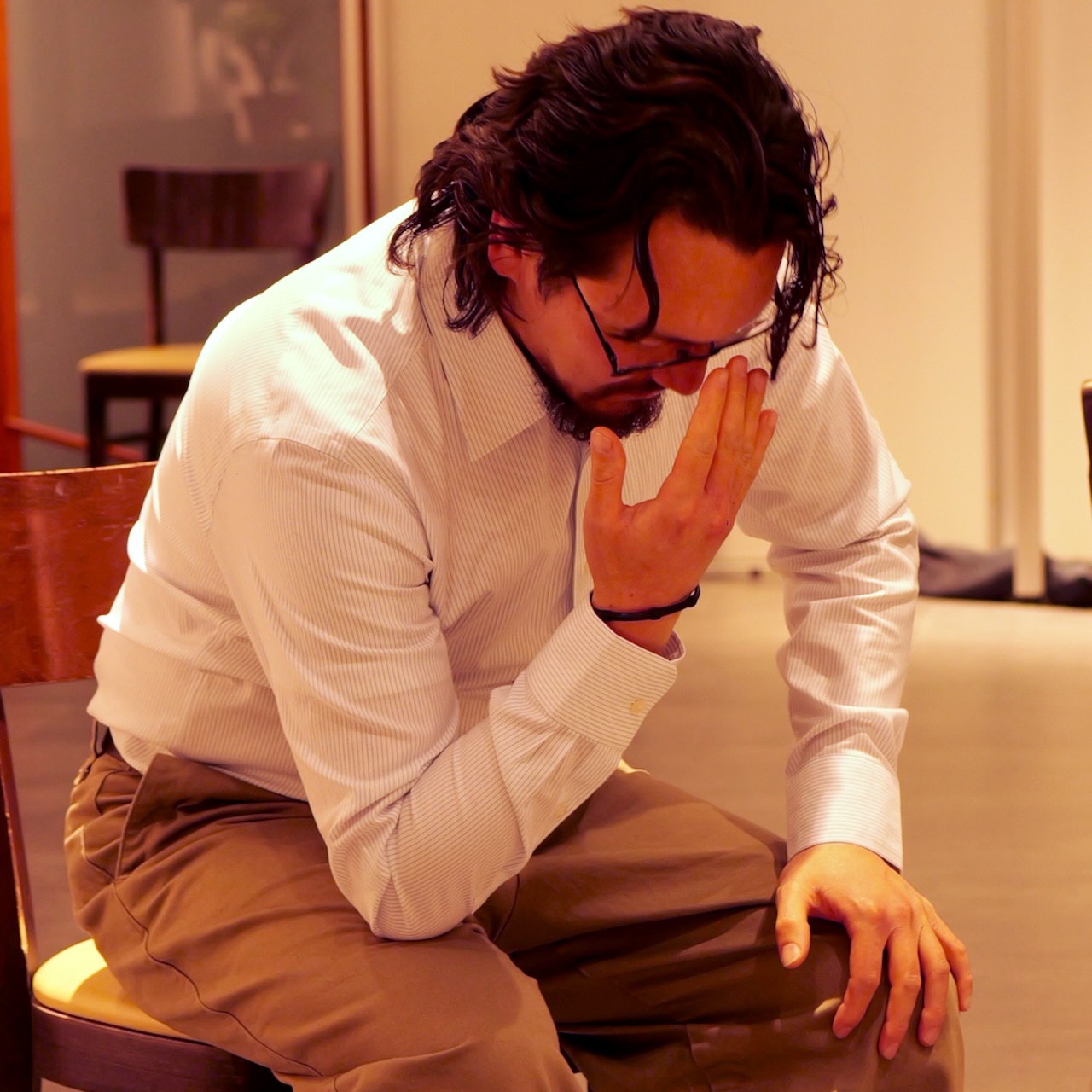
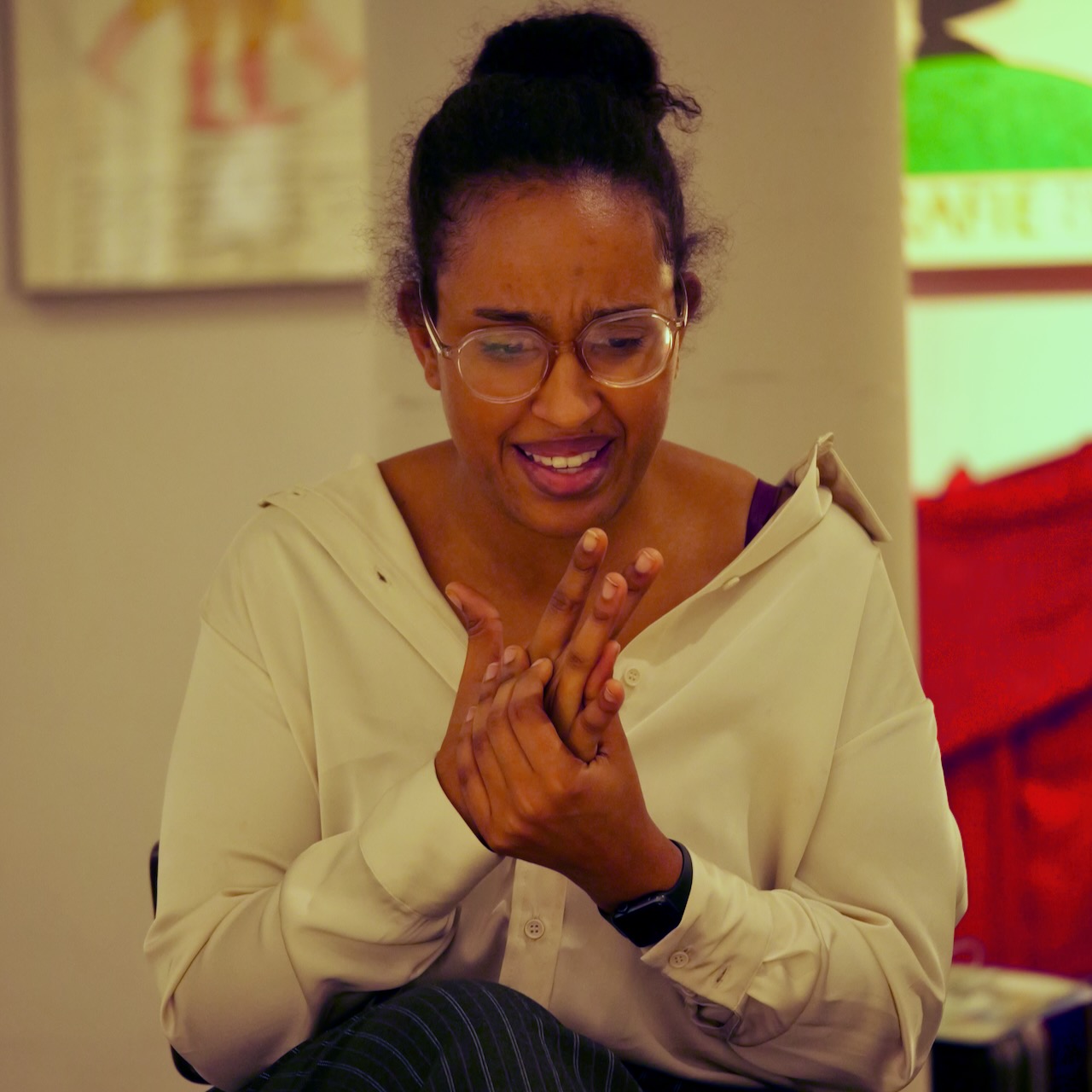
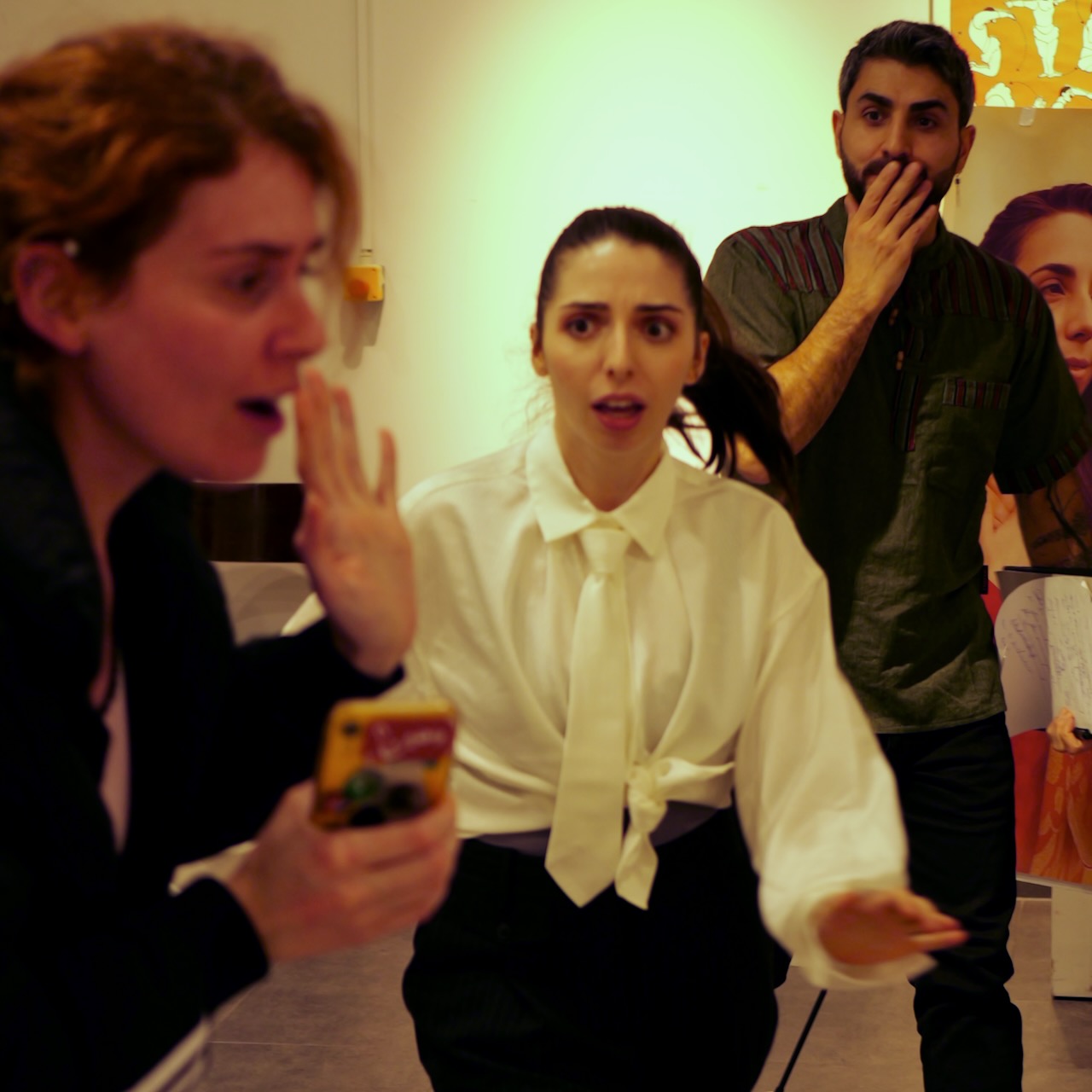
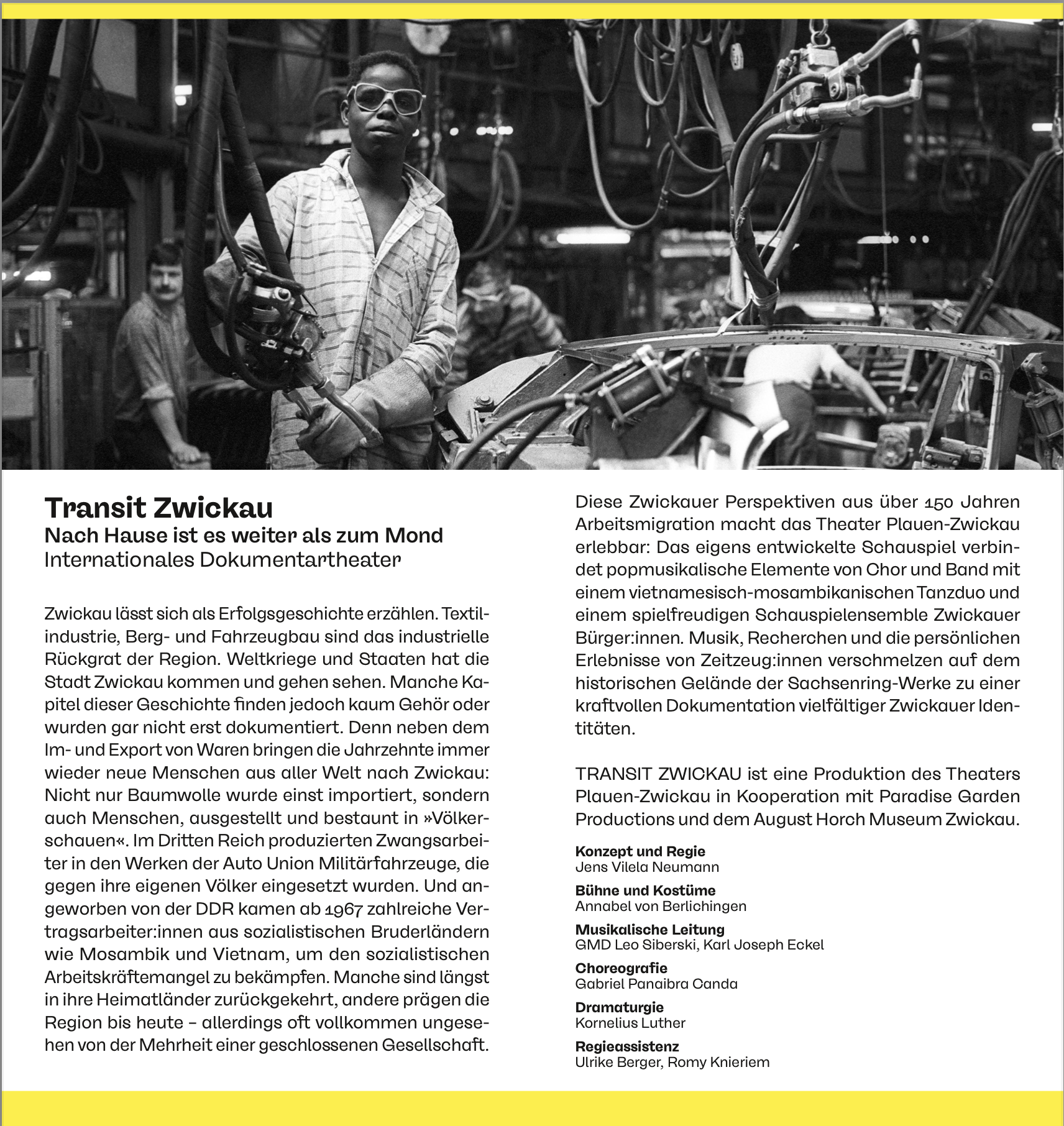
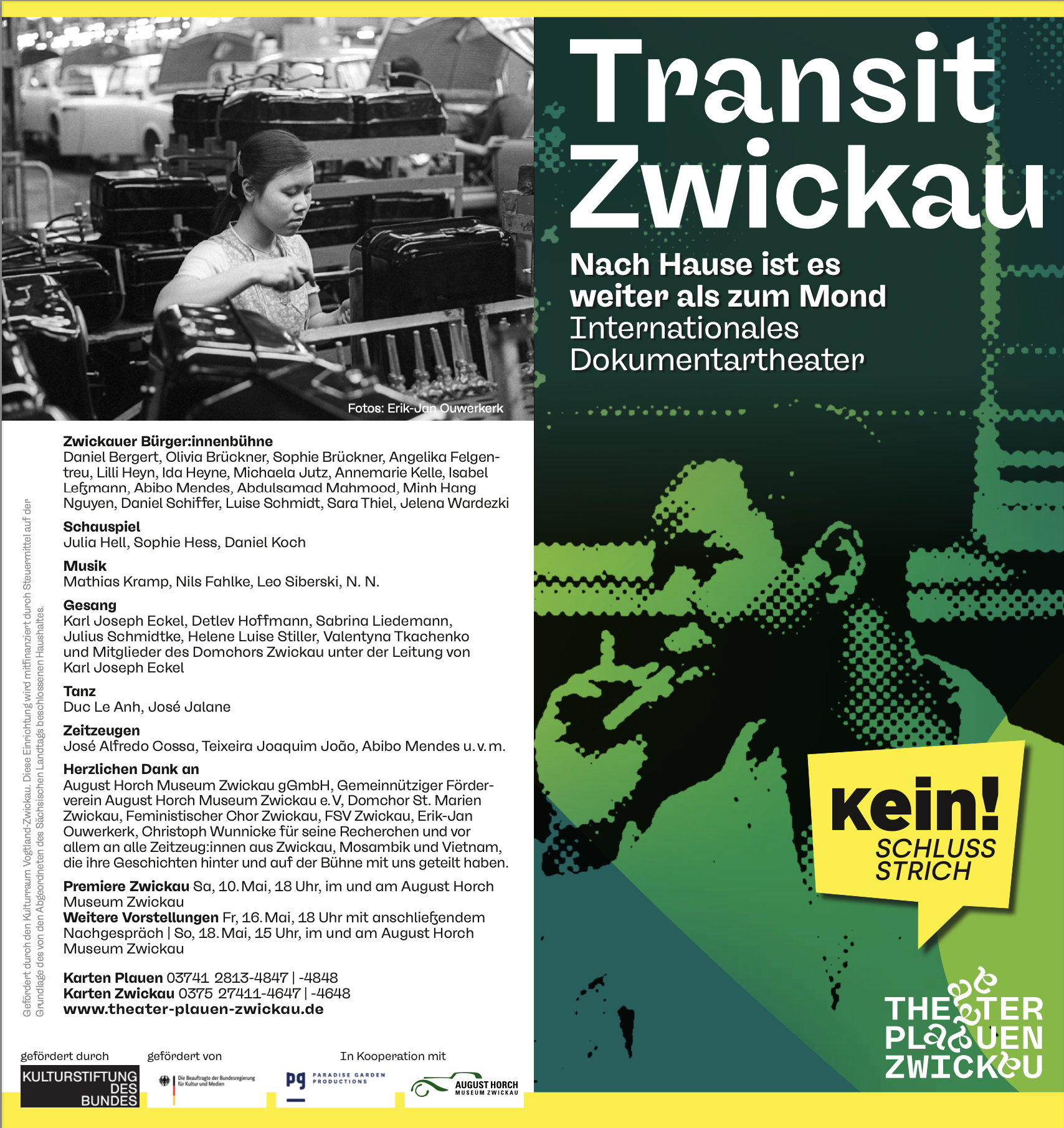
TABU, MY DARLING? will be performed on 15 & 16 November 2024 at 7 p.m. at the KungerKiezTheater in Berlin
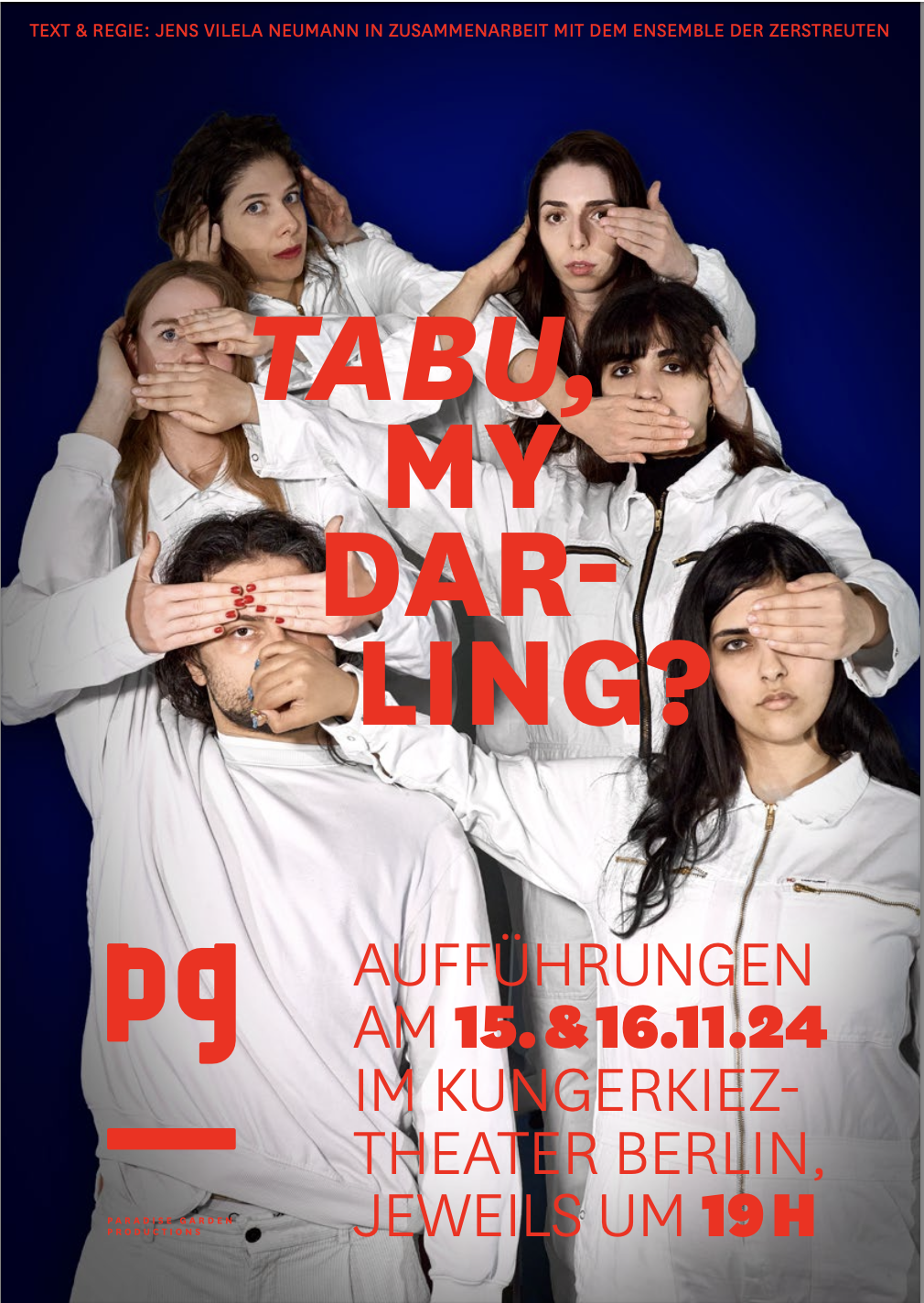
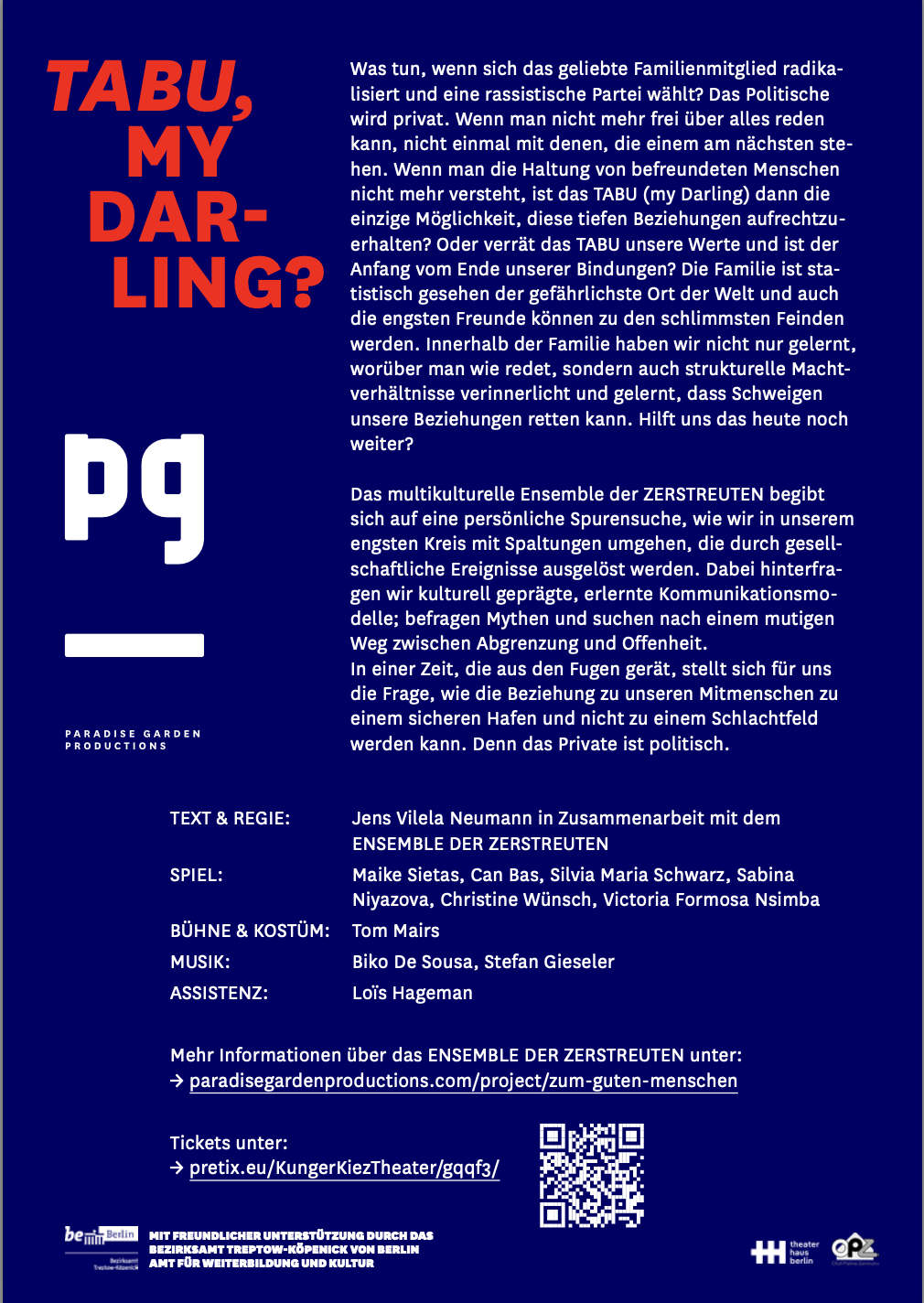
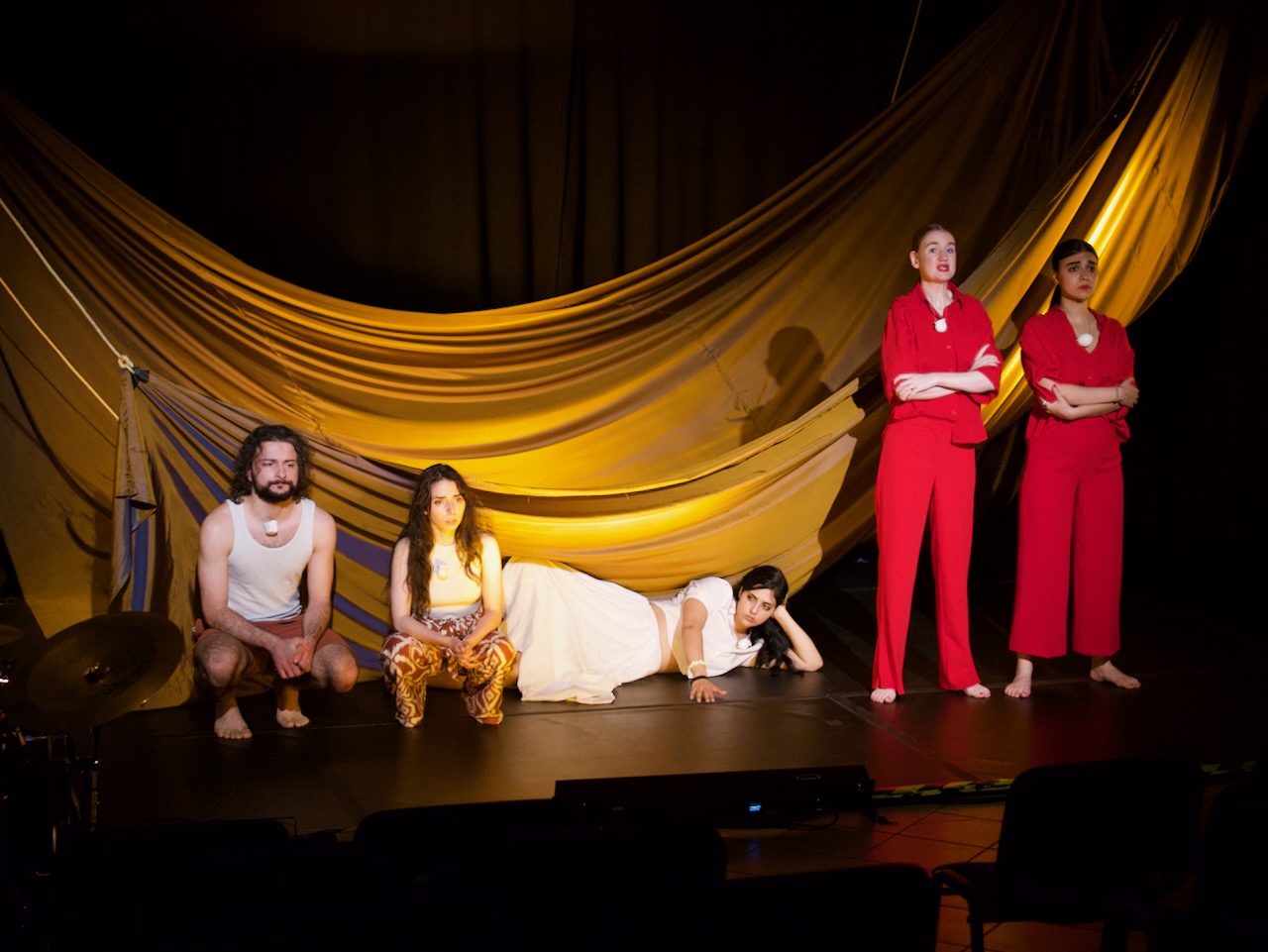
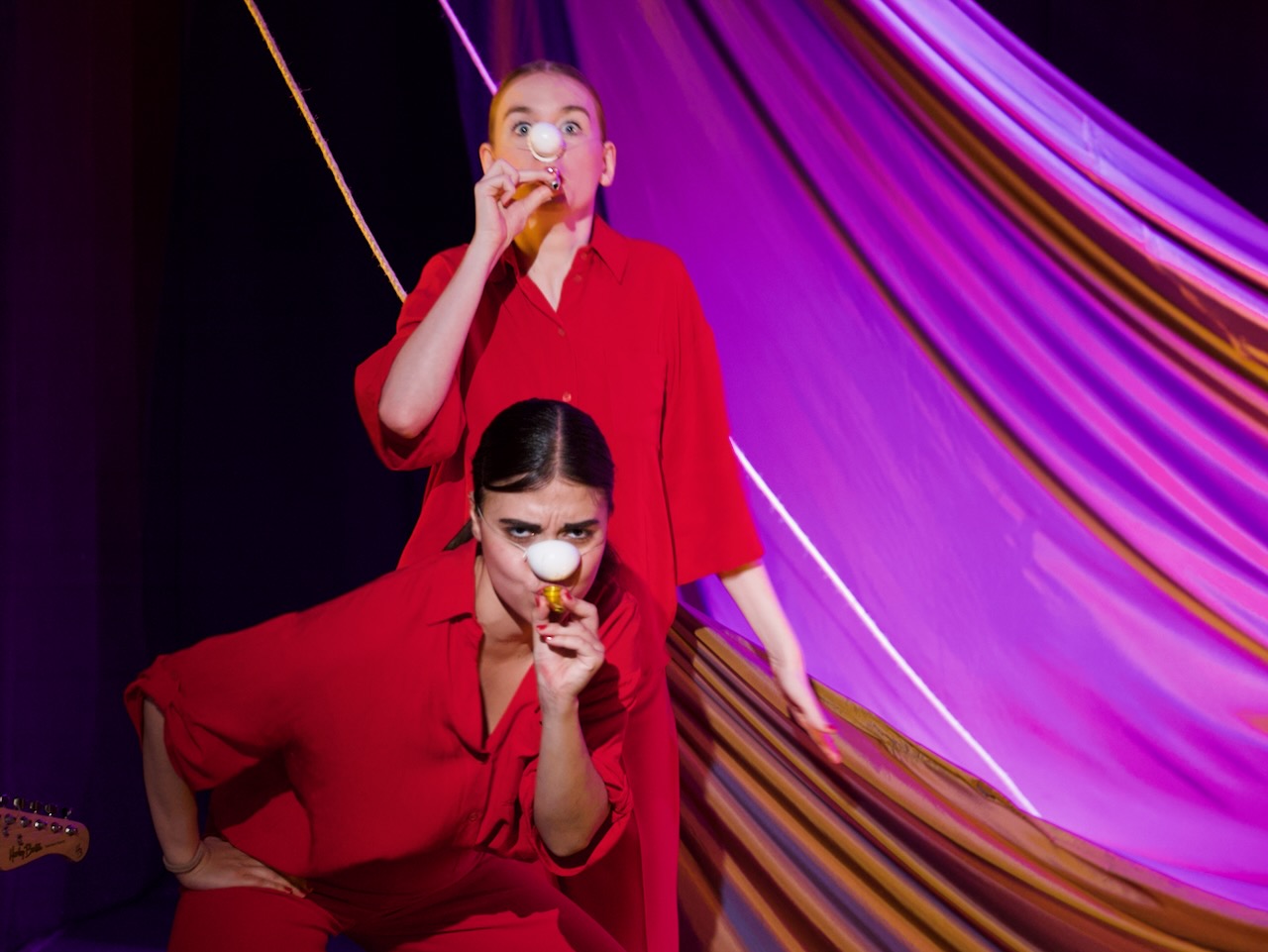
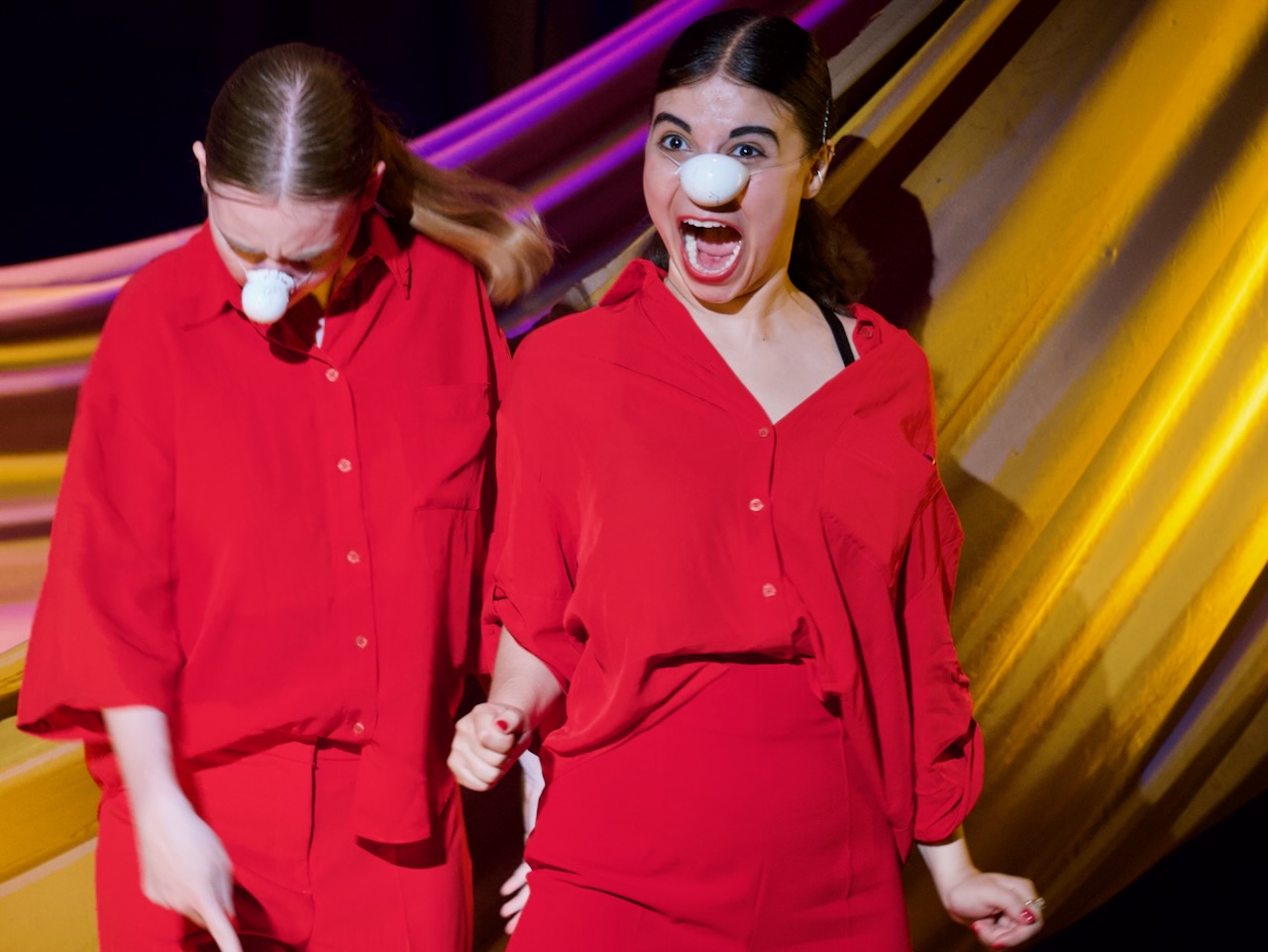
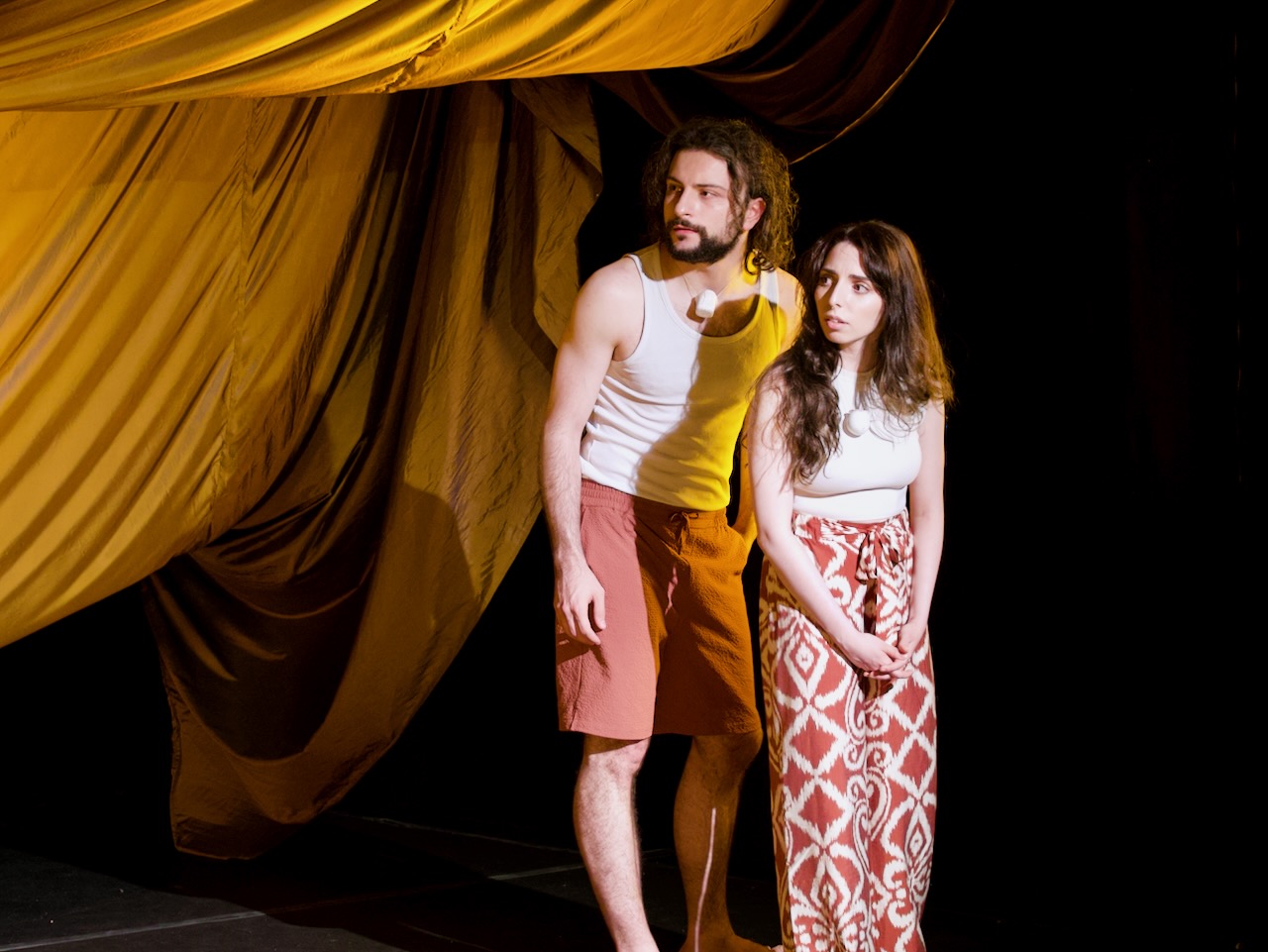
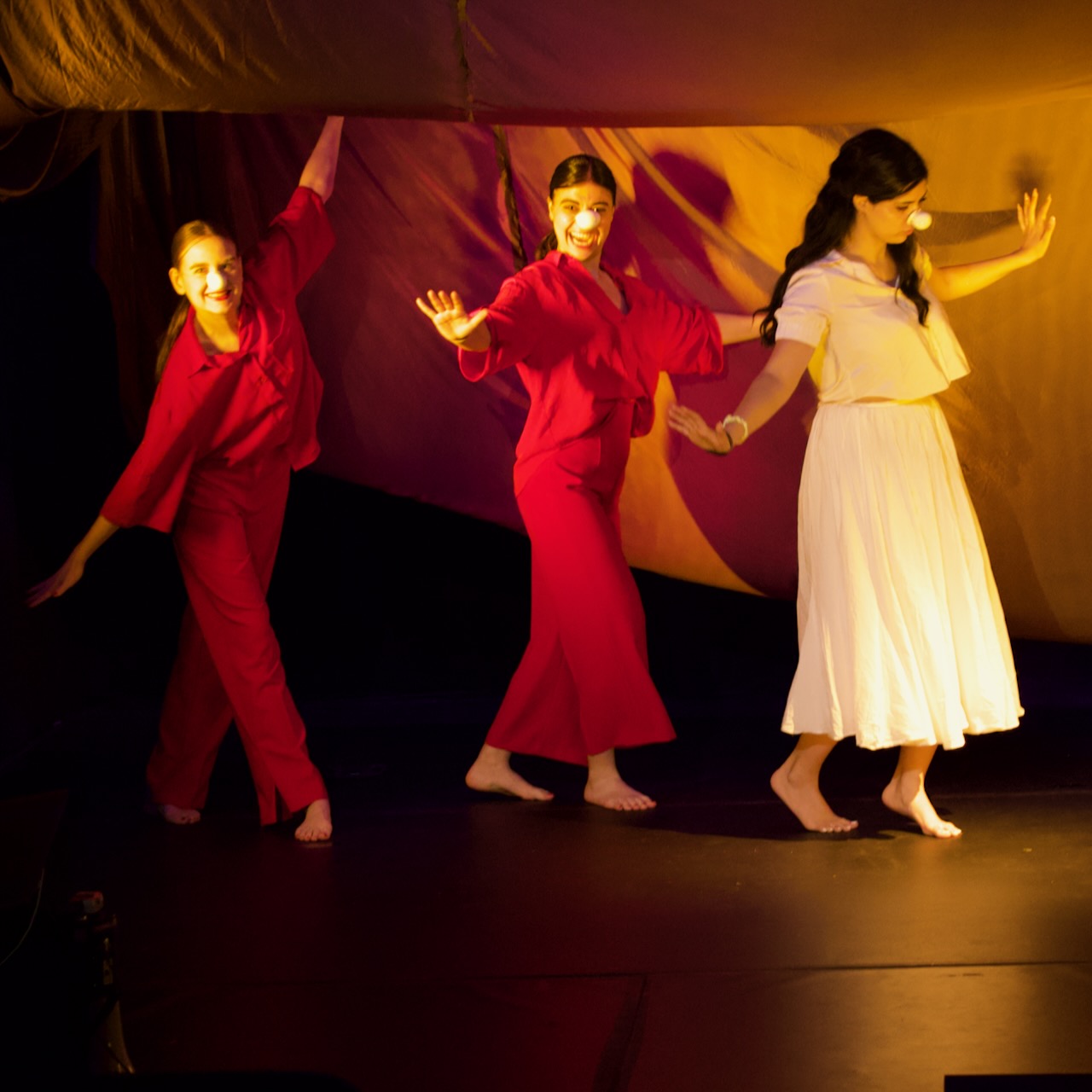
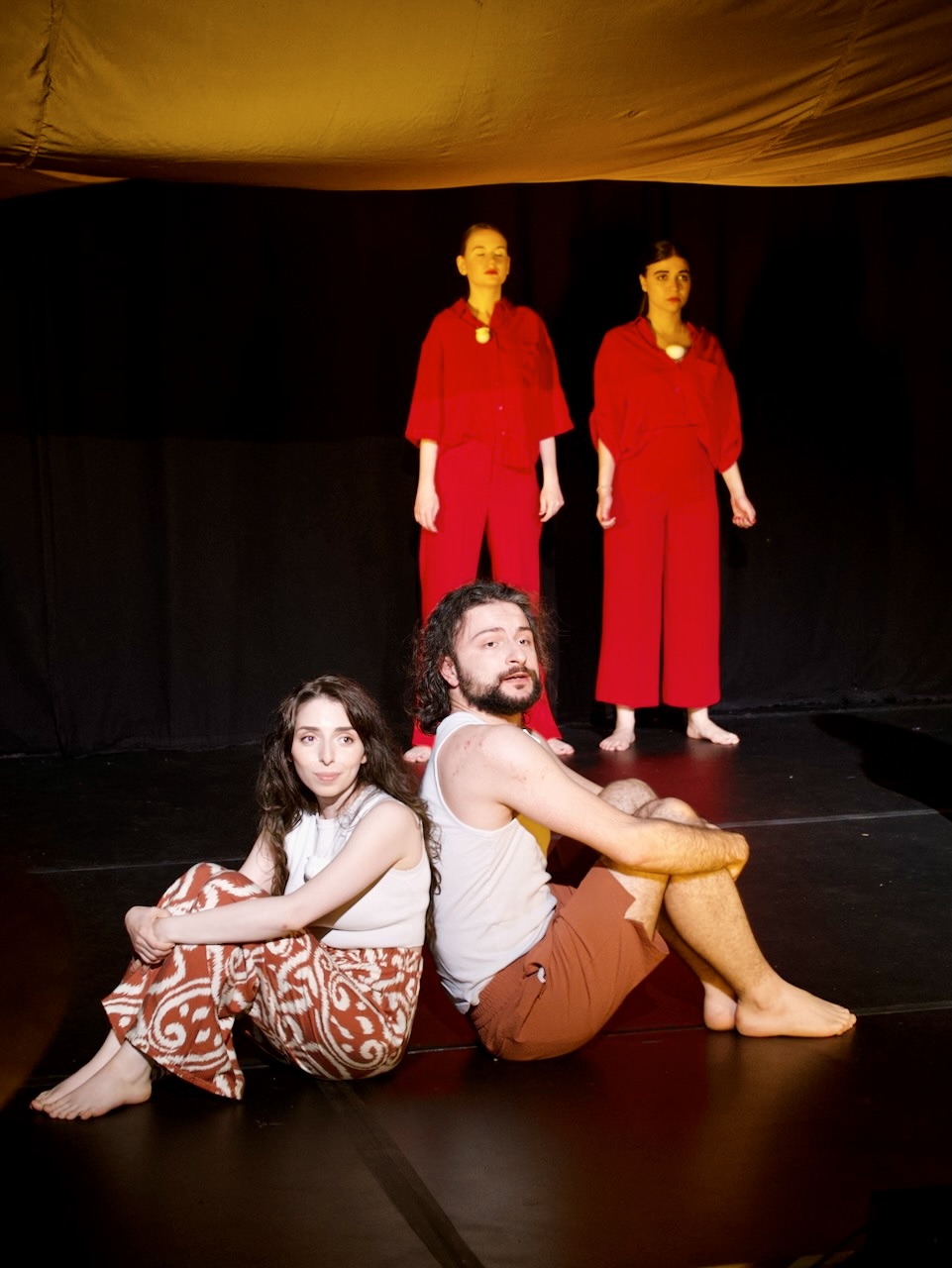
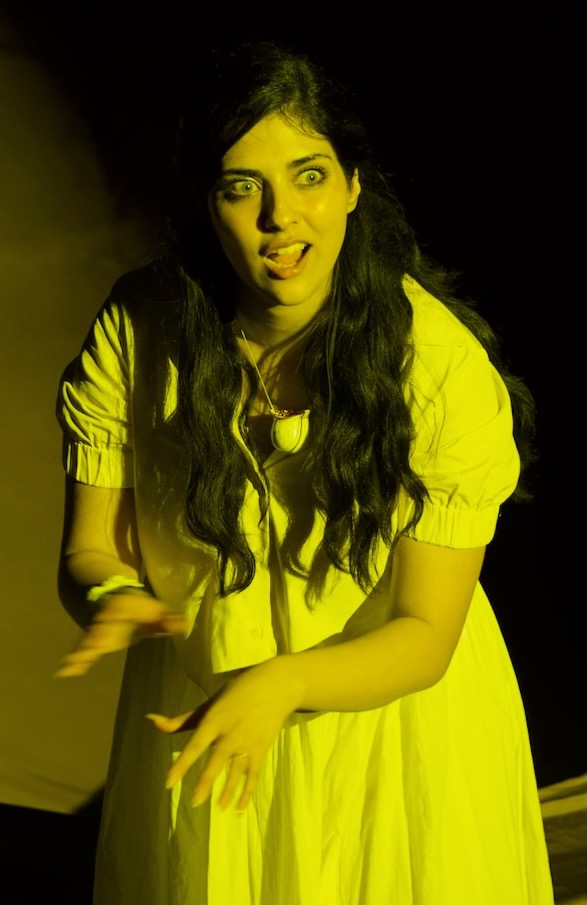
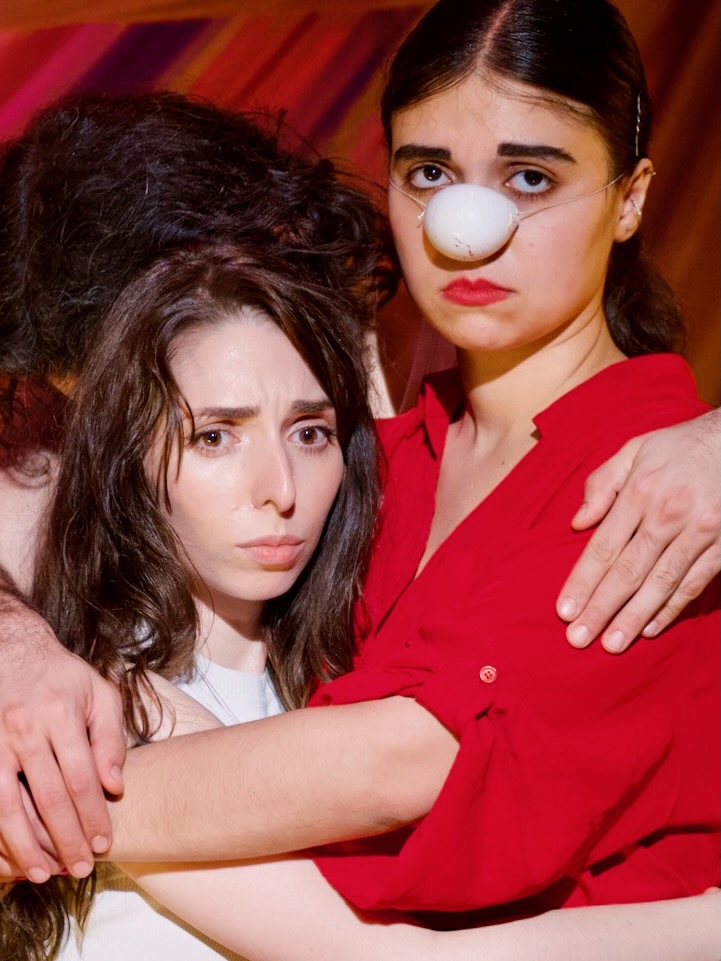
PREMIERE: THE ROBBERS freely adapted from Schiller can be seen on 26.&.27.10. 2024 and on 08.11.2024 at the Klubhaus Alte Mensa Freiberg / Saxony
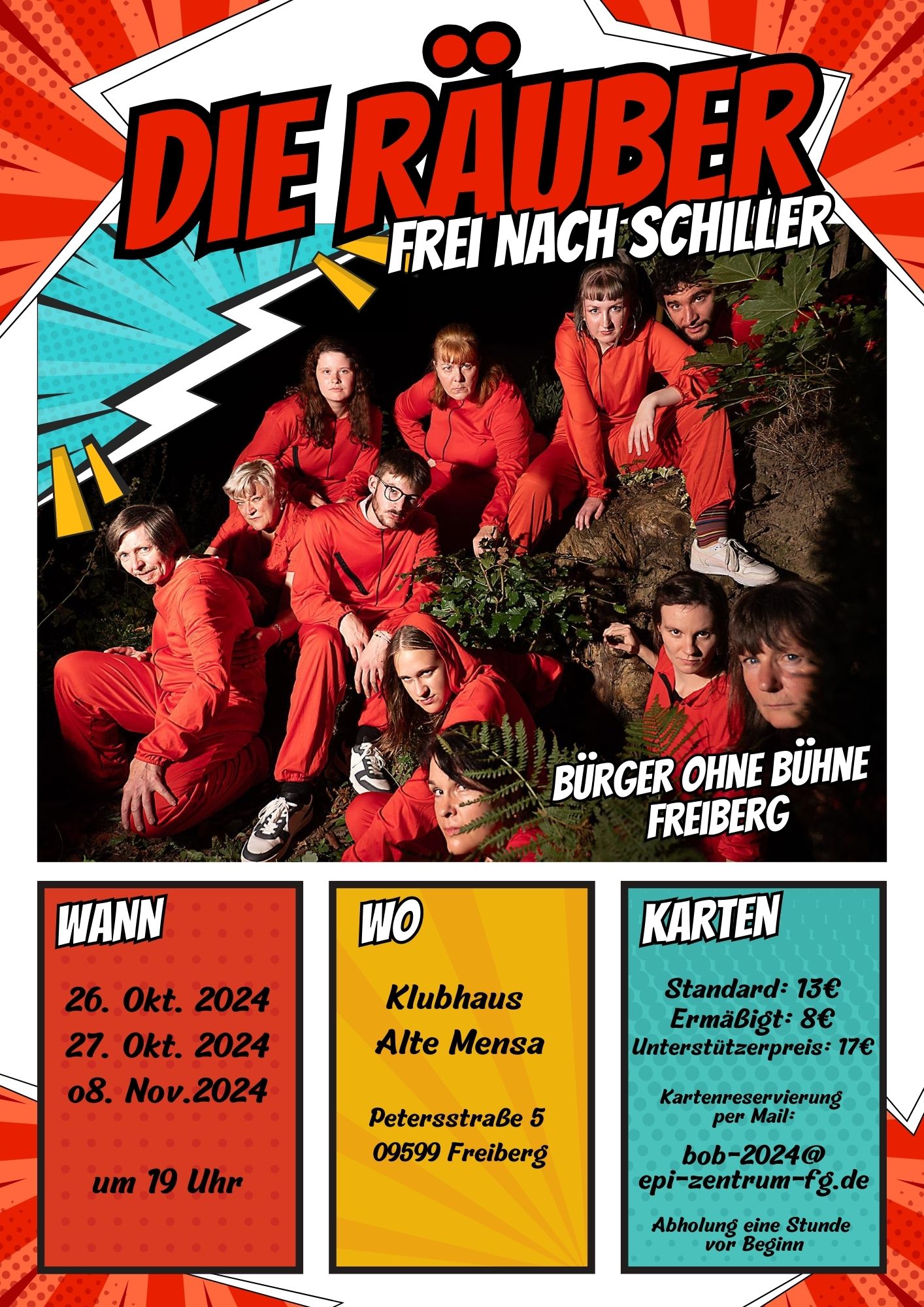
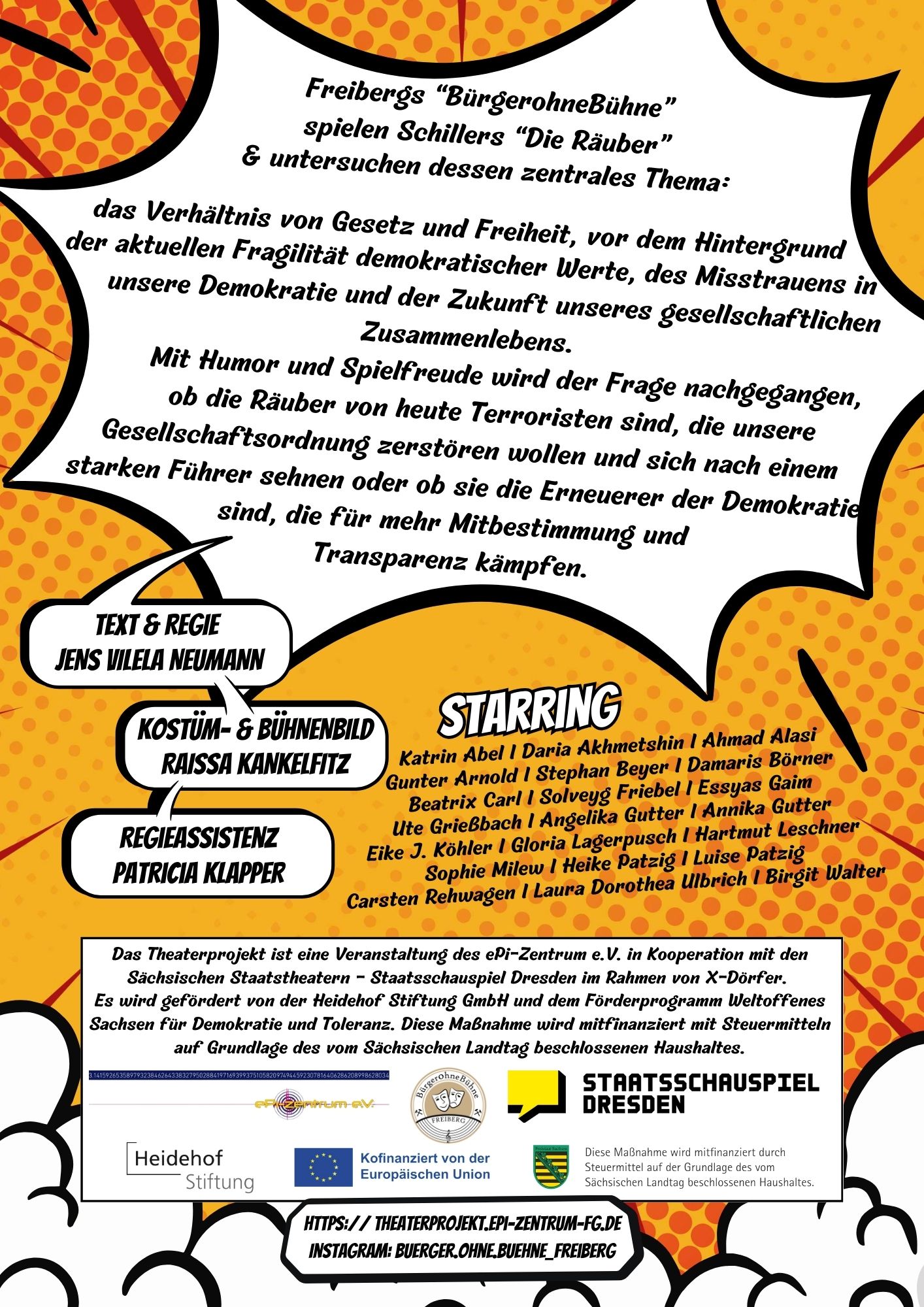
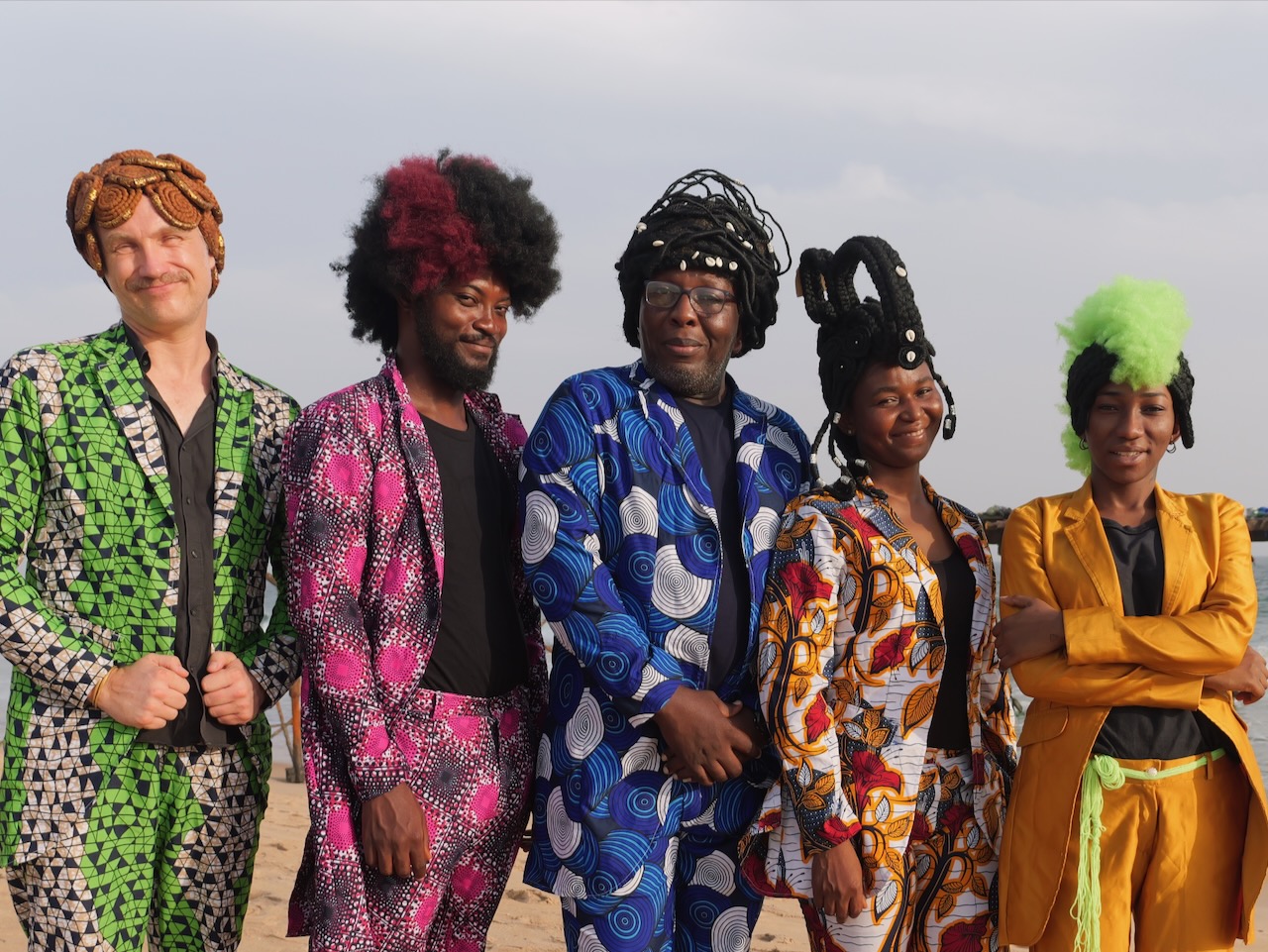
VILELA NEUMANN Jens / HOUNOU Ségnon / WILSI Akpénè / TAKARA Pierrette / DJ Diponne
Our theatre performance project "EX-TRAHERE MATRIX" is ON TOUR:
We start our journey at the Hof-Festspiele in Berlin Kreuzberg. Further information at: EX-ME Webpage
On 05.07.24 at 20:00
Afterwards our ensemble from Lomé will perform in Marburg. Further information at: Waggonhalle Webpage
On 10.07.24 at 19:30
We continue our journey to the "Highdigenous Live! The Festival of Amazement" in Paderborn. Further information at: Highdigenous.live webpage On 12.07.24 20:00
We are delighted to be able to bring the increasingly pressing issue of "climate injustice" into the debate on the legacy of German colonialism with our artistic and factual performance lecture.
Premiere: TABU, MY DARLING?
(working title) on 22.06.2024 at the KungerKiezTheatre 7 pm Tickets at: KungerKiezTheater
What to do if a beloved family member becomes radicalised and votes for a racist party? Politics becomes private. When you can no longer talk freely about everything, not even with those closest to you. When you no longer understand the attitudes of loved ones, is TABU (my darling) the only way to maintain these deep relationships? Or does TABU betray our values and is it the beginning of the end of our bonds? Statistically speaking, the family is the most dangerous place in the world. Even the closest of friends can become the worst of enemies. Within the family, we have not only learnt what to talk about and how, but also internalised structural power relations and learnt that silence can save our relationships. Does this still help us today?
The multicultural ZERSTREUTEN ensemble embarks on a personal search for clues as to how we deal with divisions in our closest circle that are triggered by social events. In doing so, we scrutinise culturally shaped, learned communication models, question myths and search for a courageous path between demarcation and openness.
In a time that is coming apart at the seams, we are faced with the question of how the relationship with our fellow human beings can become a safe harbour and not a battlefield. Because the private sphere is political.
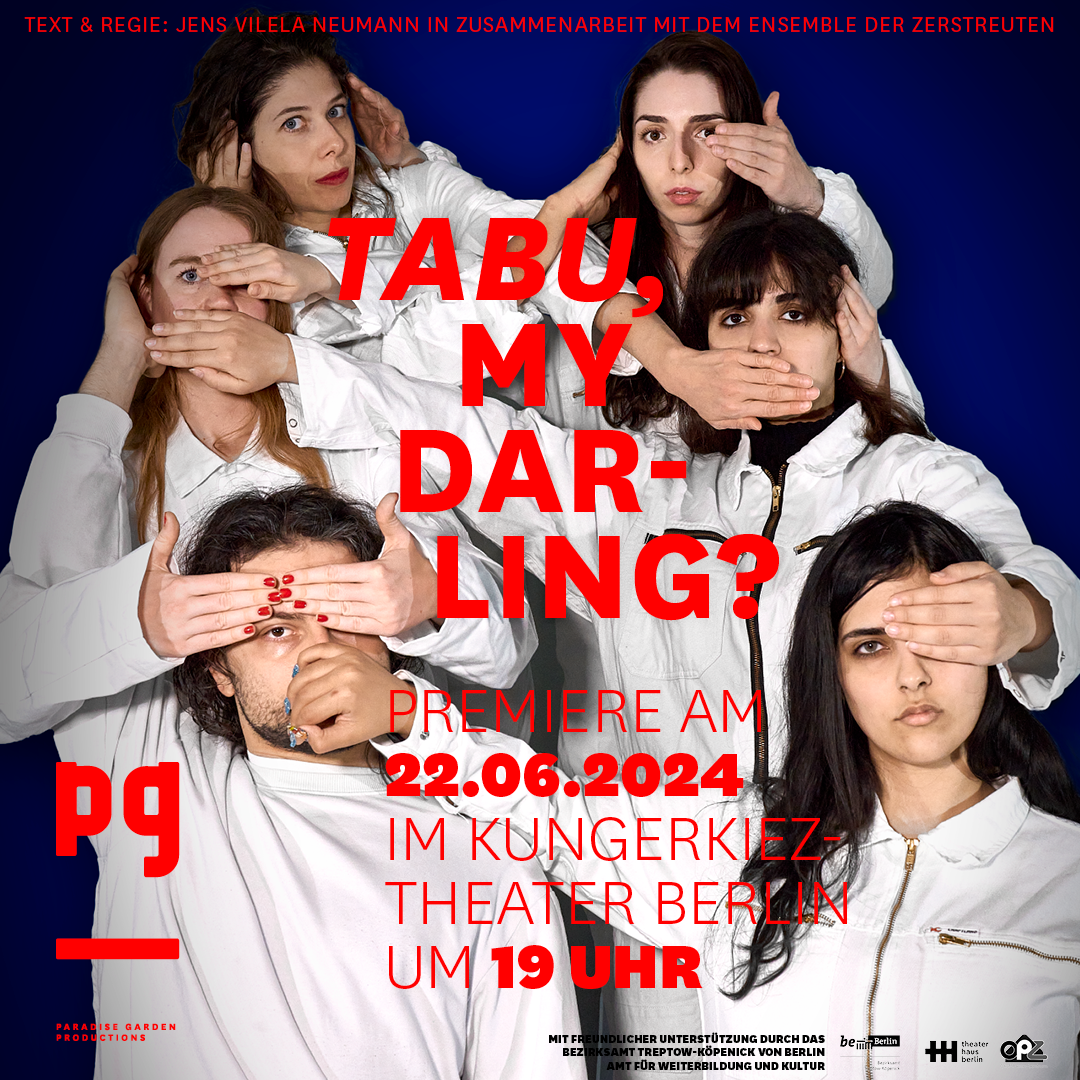
PREMIERE: CEREMONY FOR A WOUND
on 23.05.2024 in the castle courtyard in Freiberg / Saxony / Further information at: Project website
To mark the 75th anniversary of the signing of the Basic Law, we are presenting a performance in collaboration with the BürgerohneBühne in Freiberg. There we relate contemporary and biographical experiences to the themes of the human rights in order to link past and present.
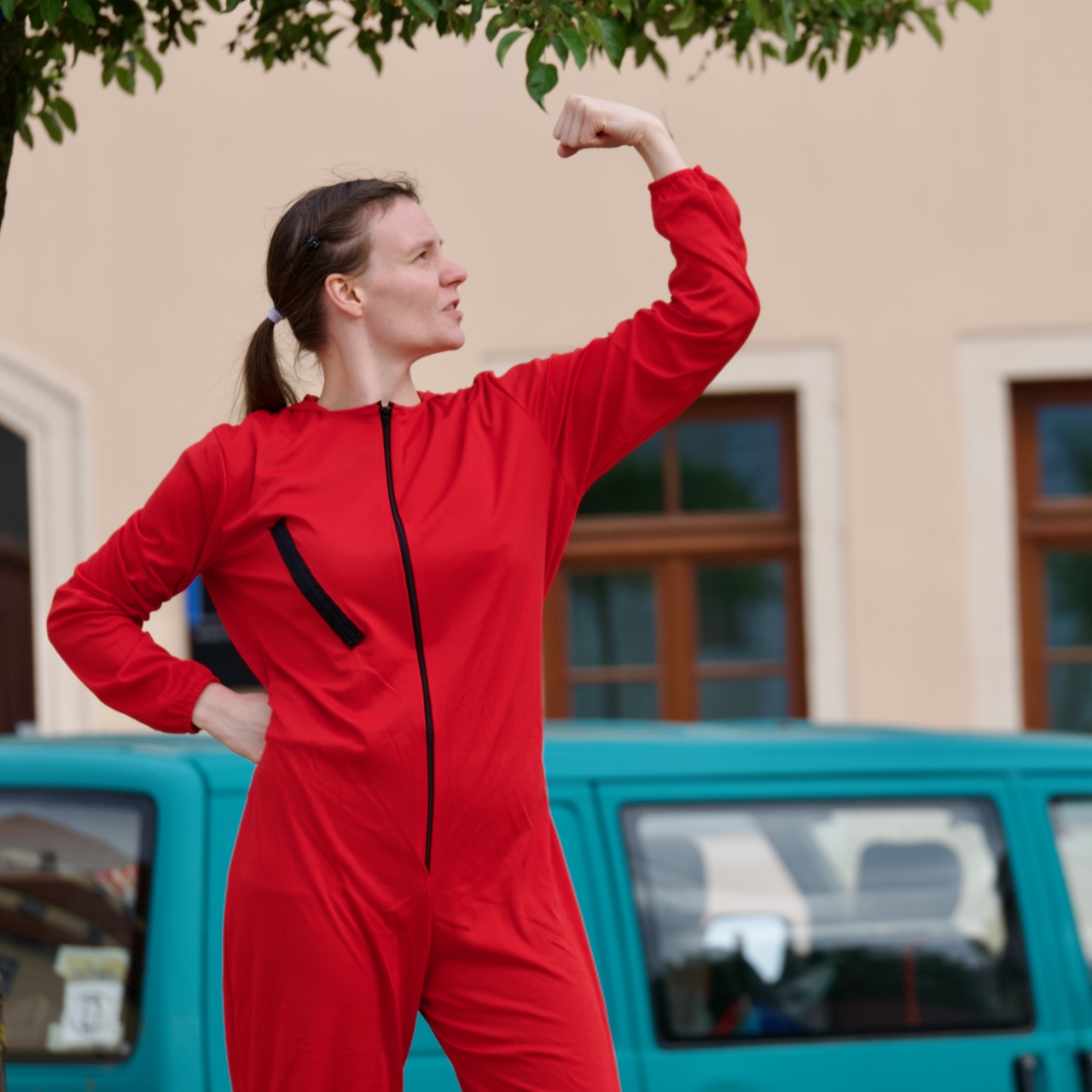
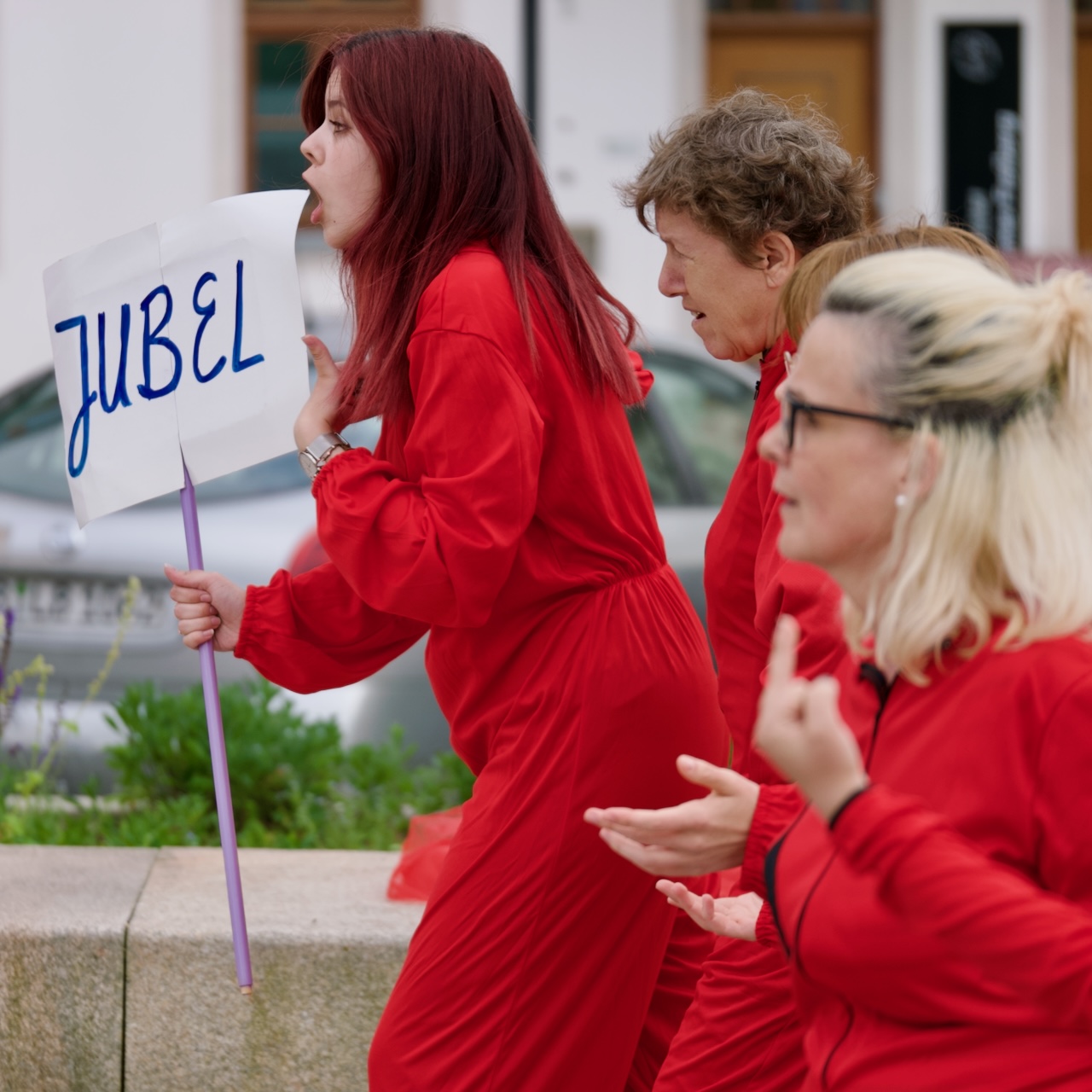
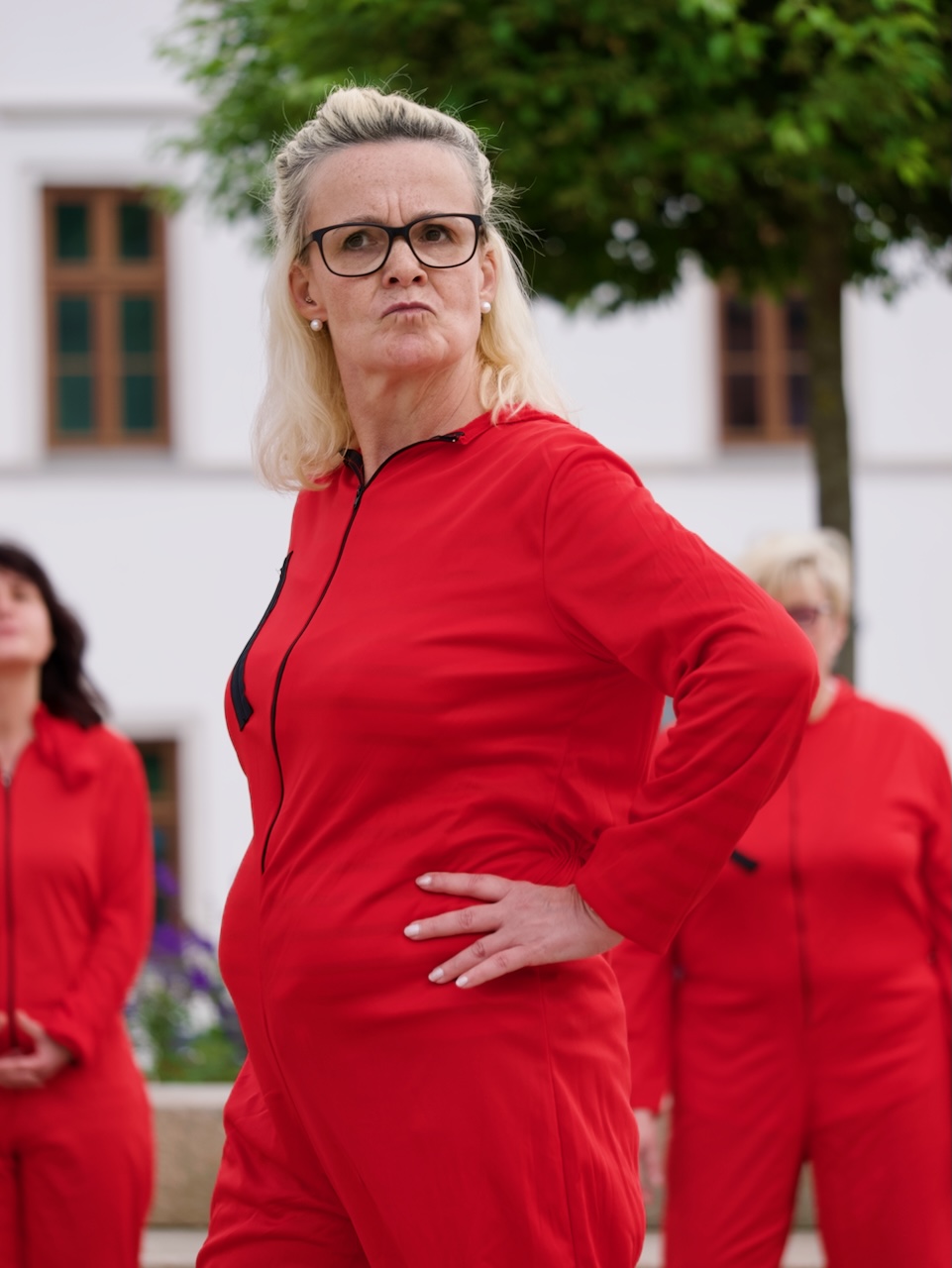
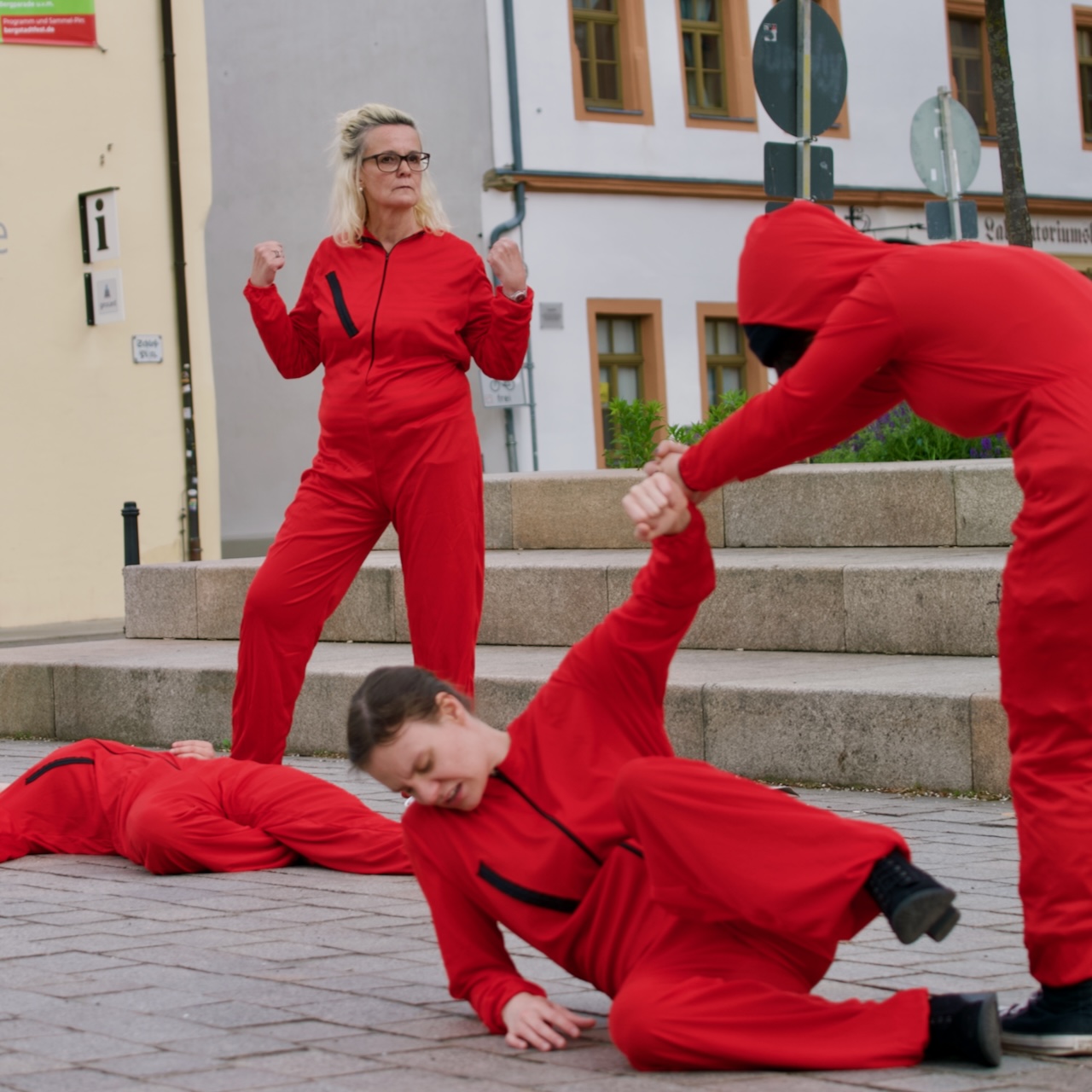
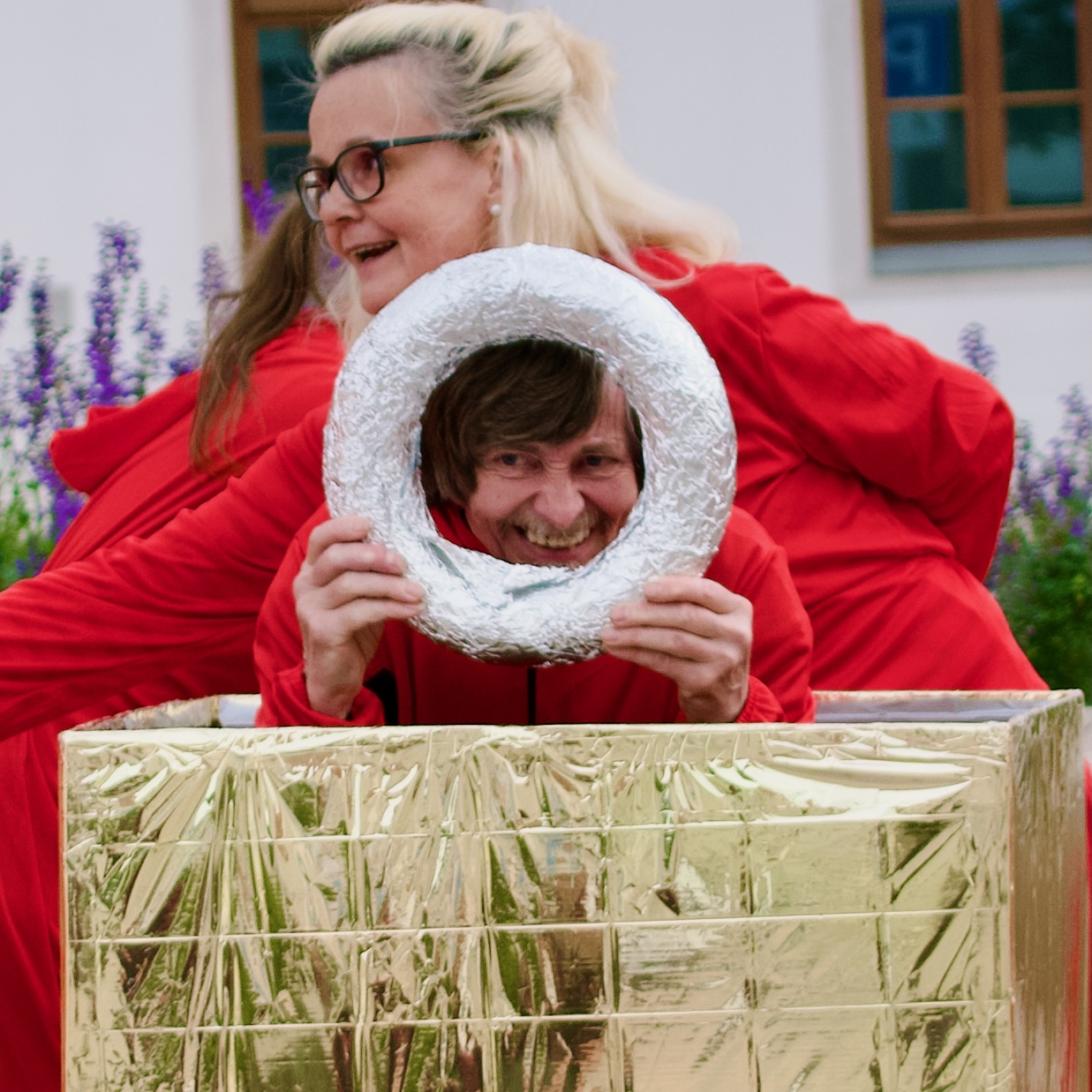
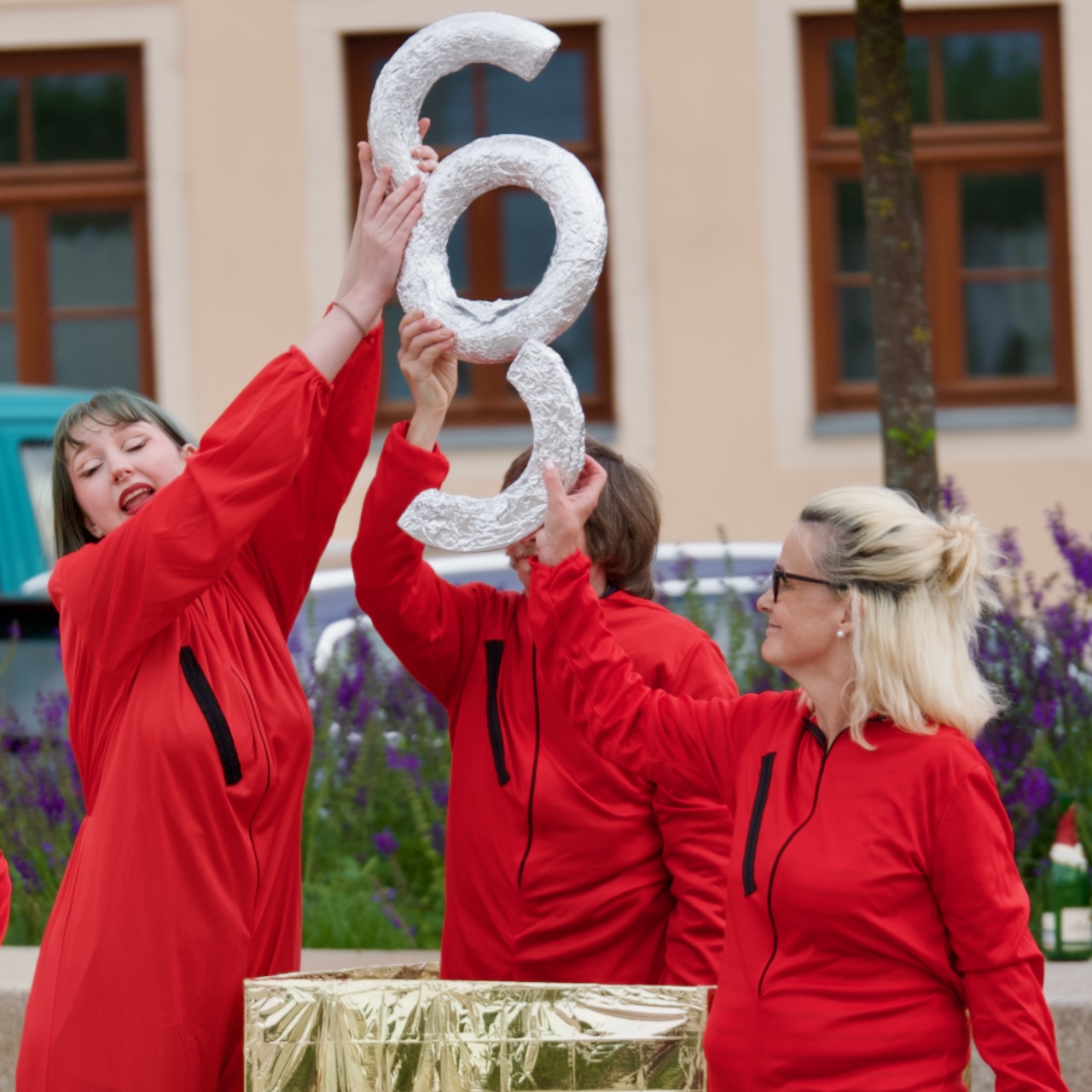
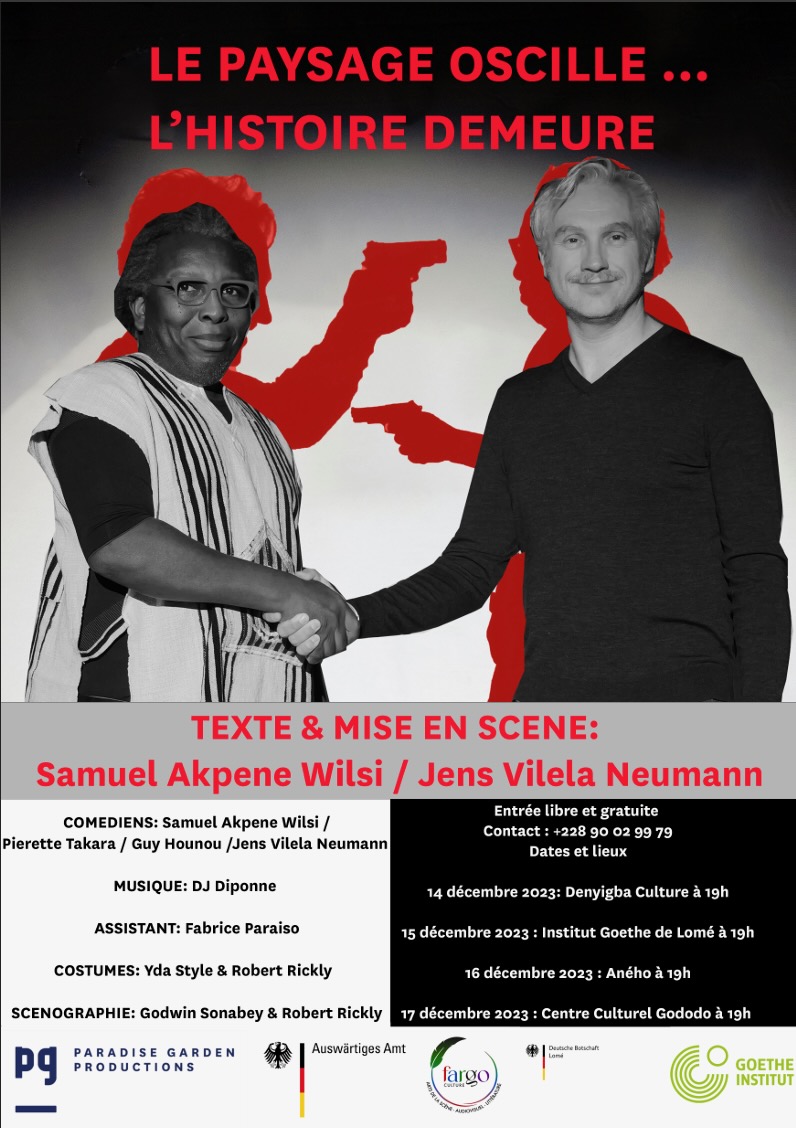
With the project "The Ex-traher Matrix", we are spanning the arc from colonialism to climate justice. We are working with artists and activists from Togo and exploring the traces of colonialism and climate change on the ground. The aim is to give local people a voice so that they do not become secondary characters in the drama of climate justice that directly affects them. On the one hand, Togo is severely affected by climate change, while on the other, Germany's colonial history has hardly been dealt with. The project enables a creative, critical exchange and dialogue - which is at the same time a historical look back and forward. In this way, we want to bring the topic "Ex-trahere Matrix - from colonialism to climate justice" to the attention of the media in Togo and Germany. The Extrahere Matrix is a hybrid of theatre, symposium and film documentary, a performance lecture.
"The current acceleration of climate change is not just an unintended consequence of industrialisation. The climate has always been a project of the colonial powers, who have always worked to shape it." (Eyal Weizman, architect and writer)
How are colonialism and the climate crisis connected? And why is the topic so important - for people in former German colonies but also for people in Germany? A guest performance tour in Germany is planned for 2024.
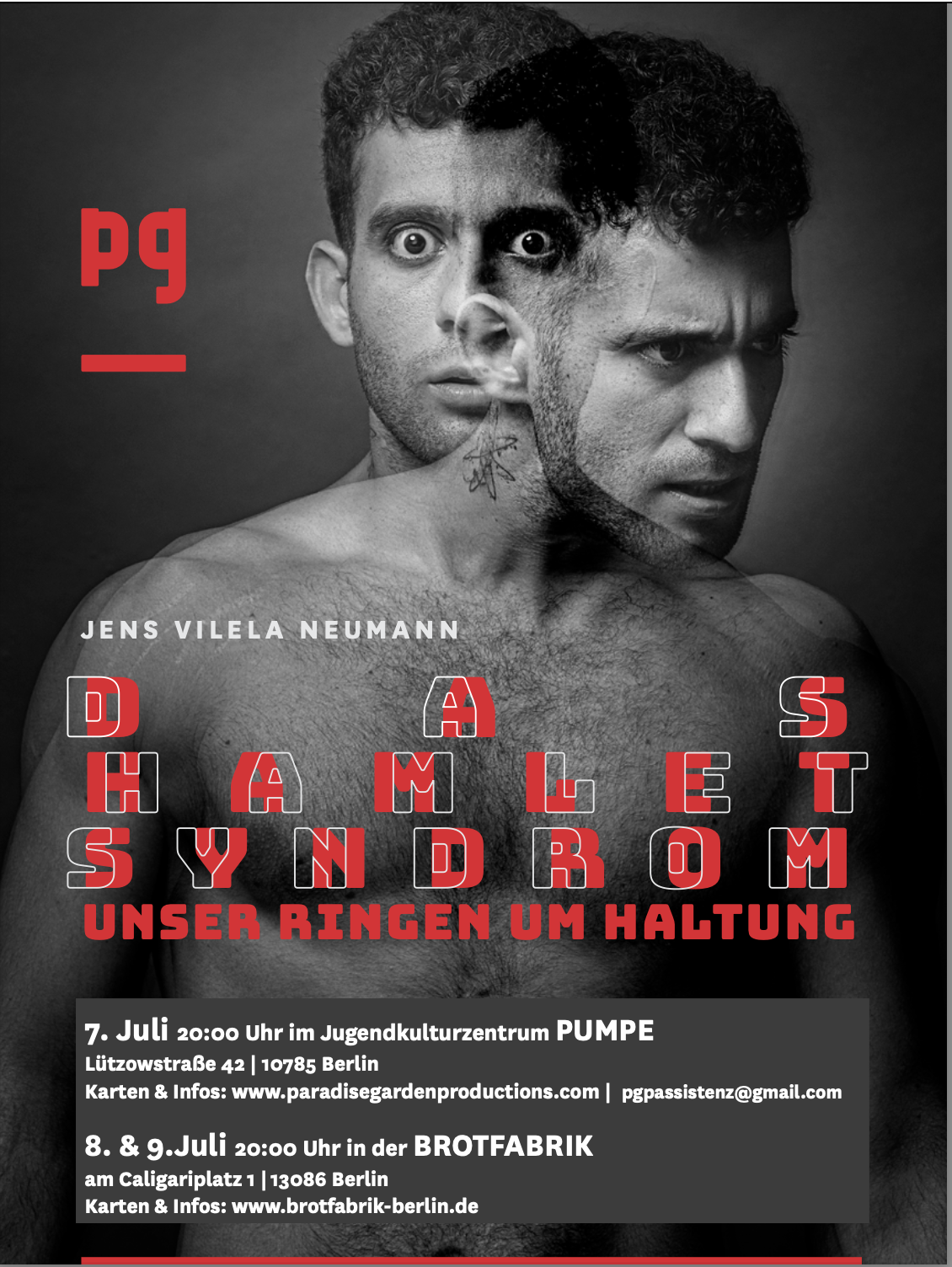
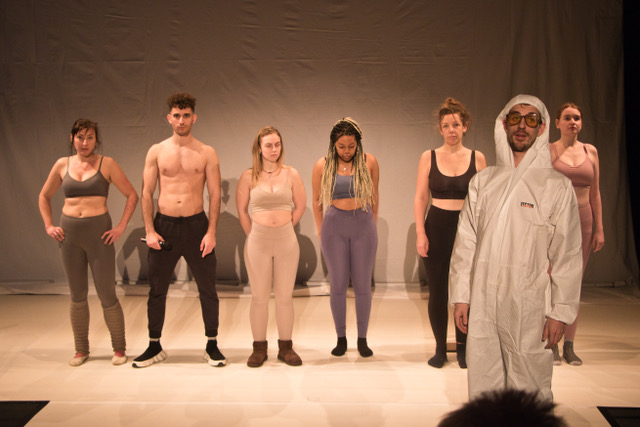
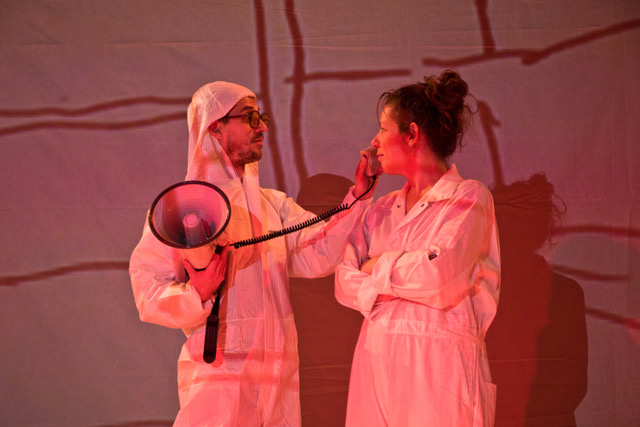
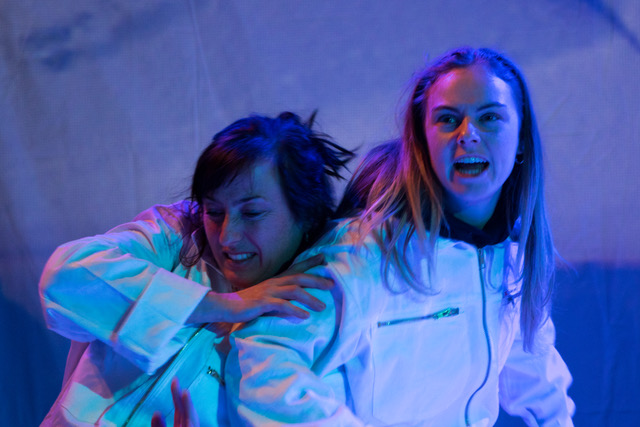

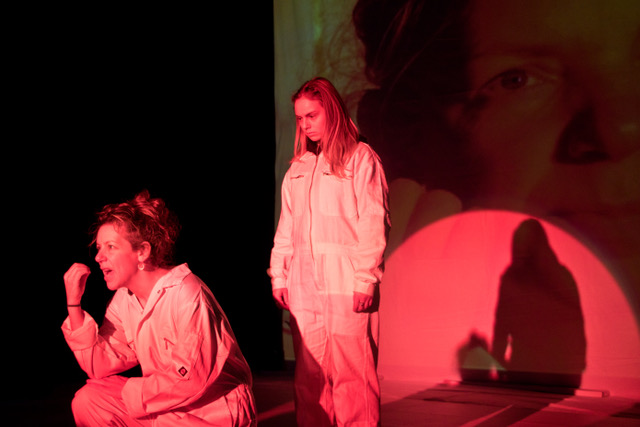
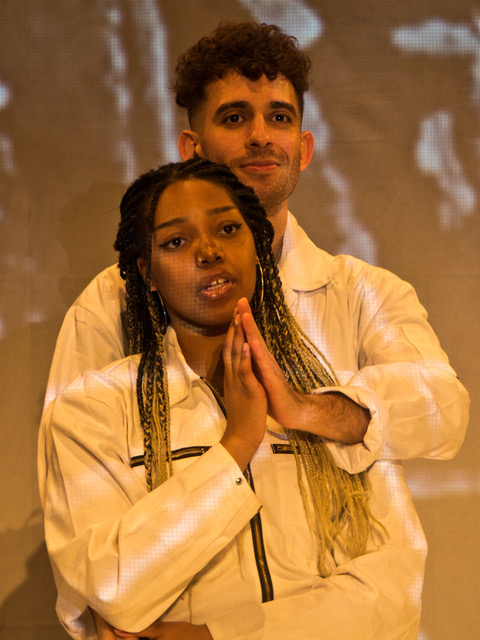
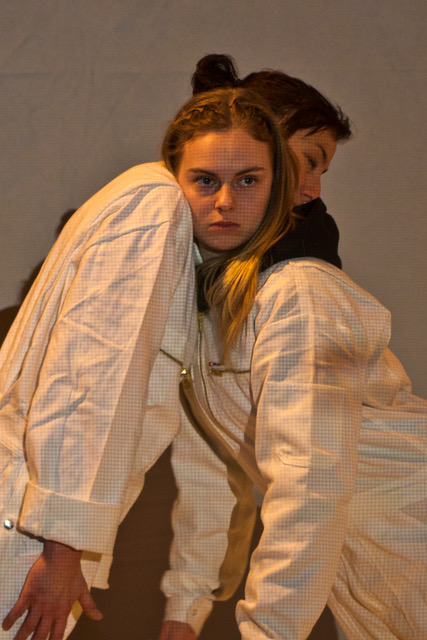
WE ARE PLAYING "HAMLET SYNDROME - OUR STRUGGLE FOR ATTITUDE" on 20.10. at 11:00 and 19:00 at the KungerKiezTheater
Tickets & Info: KungerKiezTheater
and on 4.11. at 7:30 pm at the Vogtlandtheater Plauen
Theatre Square 08523 Plauen
Tickets & Info: Plauen Tickets
and on 11.11. at 19:30 and 12.10. at 17:00 at the Studiobühne Uni Paderborn
Tickets & Info: Studiobühne Uni Paderborn Tickets
Shakespeare's Hamlet is one of the most famous classics of world literature and shows us that ambivalence is almost impossible to escape. We strive to be clear in our thoughts and actions, but given the multiplicity of possibilities, it is difficult to see only one side of the coin. Hamlet embodies this inner conflict that many of us carry within us. Enduring ambivalence is a great human challenge that we face every day.
How do we justify our ambivalent behaviour to others and to ourselves, and what can be the disastrous consequences of procrastinating?
For example, we know about the disastrous consequences of climate change and yet we still get into our cars. We know the images of factory farming and yet eat cheap meat. We are cosmopolitan and tolerant, but still don't talk to our neighbours with a migration background,...
Why is it difficult to remain true to oneself? And is it worthwhile to insist on one's principles? We struggle with decisions, are torn apart inside. We are caught between two stools, whether we like it or not. Can we stand the tension or does it make us sick? And do we really adapt our actions to our thinking or is it rather the other way round?
The Ensemble der Zerstreuten is an intercultural theatre group and deals with precisely this issue in its current production. After topics such as racism, resilience and the many aspects of relationships have been critically, entertainingly, comically and always very personally brought to the stage by us in the past 5 years, we want to venture into a classical drama material for the first time. In view of the everyday inner and outer tensions, Hamlet seemed to us to be our dramatic character of the hour! -...until the first doubts arose and we had to ask the question: What does Hamlet have to do with us again?
We perform "ARBEIT & EKSTASE - the dance around the golden calf" on 28.10. in Mittweida at the Bürkel-Halle.
Tickets & Info: Mittweida Tickets
A theatre performance with citizens of Freiberg by Jens Vilela Neumann.
There was a time when we knew no money and each of us had almost everything we needed to live. We knew countless occupations, but we did not call them work. We called them life, and we valued life. Today, when our treasures are no longer called gold and silver, but cobalt and lithium, do we still value your occupations? Is it your career goal to reach the executive floor, or does the saying "He who knows the work and does not shirk it - is crazy" make more sense to you? Whether it's the silver fairy, structural change, burn-out or strike, whether it's „Seid bereit“ or the American dream "from rags to riches": this theatre performance deals with the history of the city of Freiberg and incorporates autobiographical aspects of the citizens into a narrative that explores the essential questions about the "meaning and purpose" of our working hours. And so this theatre evening is an ode to "the most beautiful thing in the world" - our work.
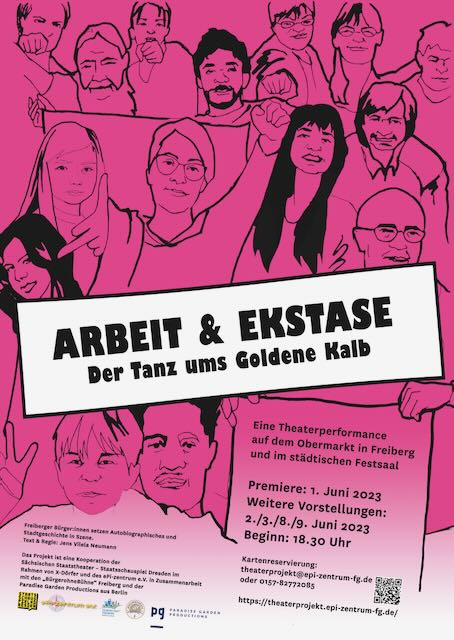
Team: text & directing: Jens Vilela Neumann / stage and costumes: Raissa Kankelfitz / composing: Lionel Tomm / production: Frieda Prochaska & Carsten Kohlschmidt / acting: Citizens from Freiberg and surroundings
More information on the project see: OUR WEBSITE
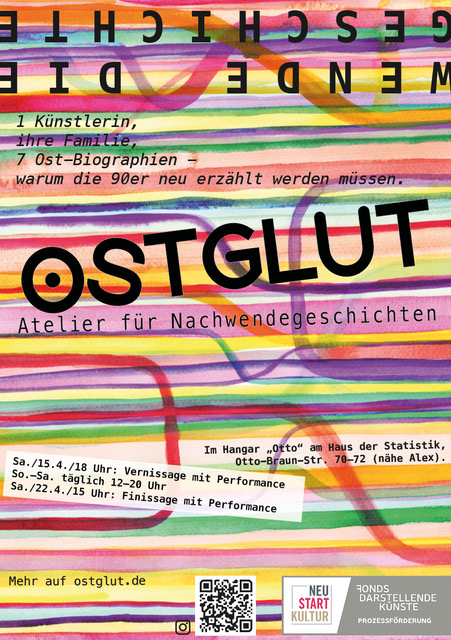
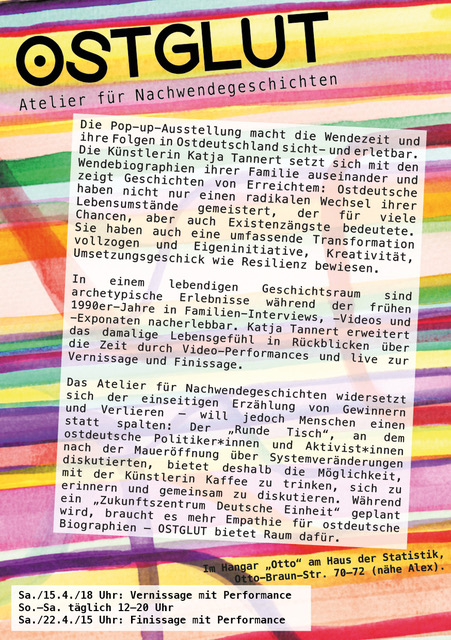
About the exhibition: The vernissage and also the finissage were very well filled with interested visitors. The response was overwhelming and very encouraging. There were three interviews, we were on Knut Elstermann's Radio Eins programme and on Deutschlandfunk Kultur's FAZIT.
So far we have been able to welcome the publisher Christoph Links, the journalist and Grimme Award winner Katharina Thoms (Mensch Mutta Podcast), Thomas Oberender and many people with their own biographies of the fall of the wall and folling years. We were very pleased about the interest. More about the exhibition at:
Congratulations
to our friend and actor Landry Nguetsa, who won the award for best Central African actor this year.
For PG he performed as Jesko von Puttkammer in the play >>Past / Present / Future Cameroon<< as well as in the RESTITUTION ART LAB at the Volksbühne Berlin.
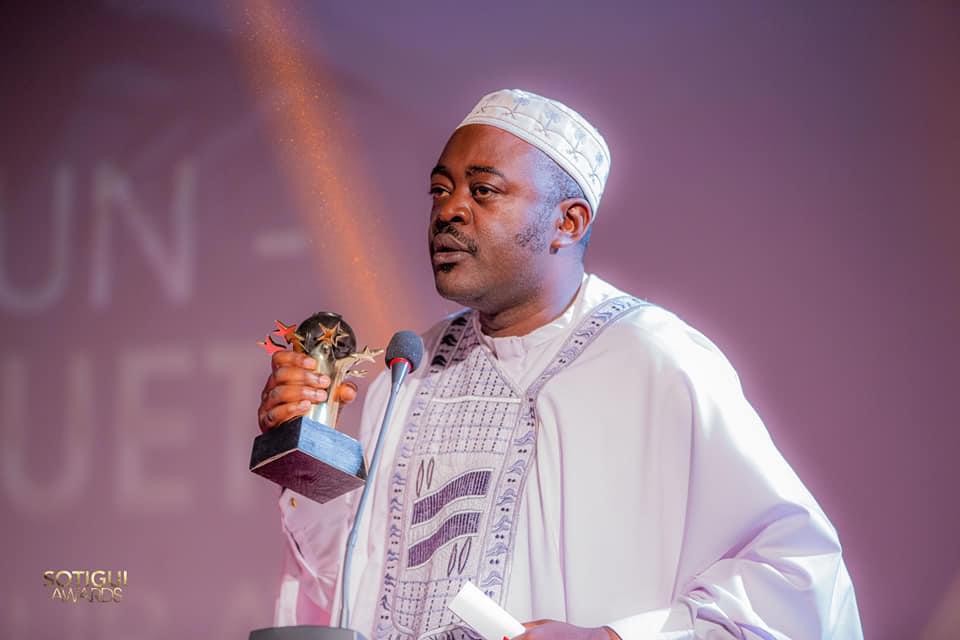
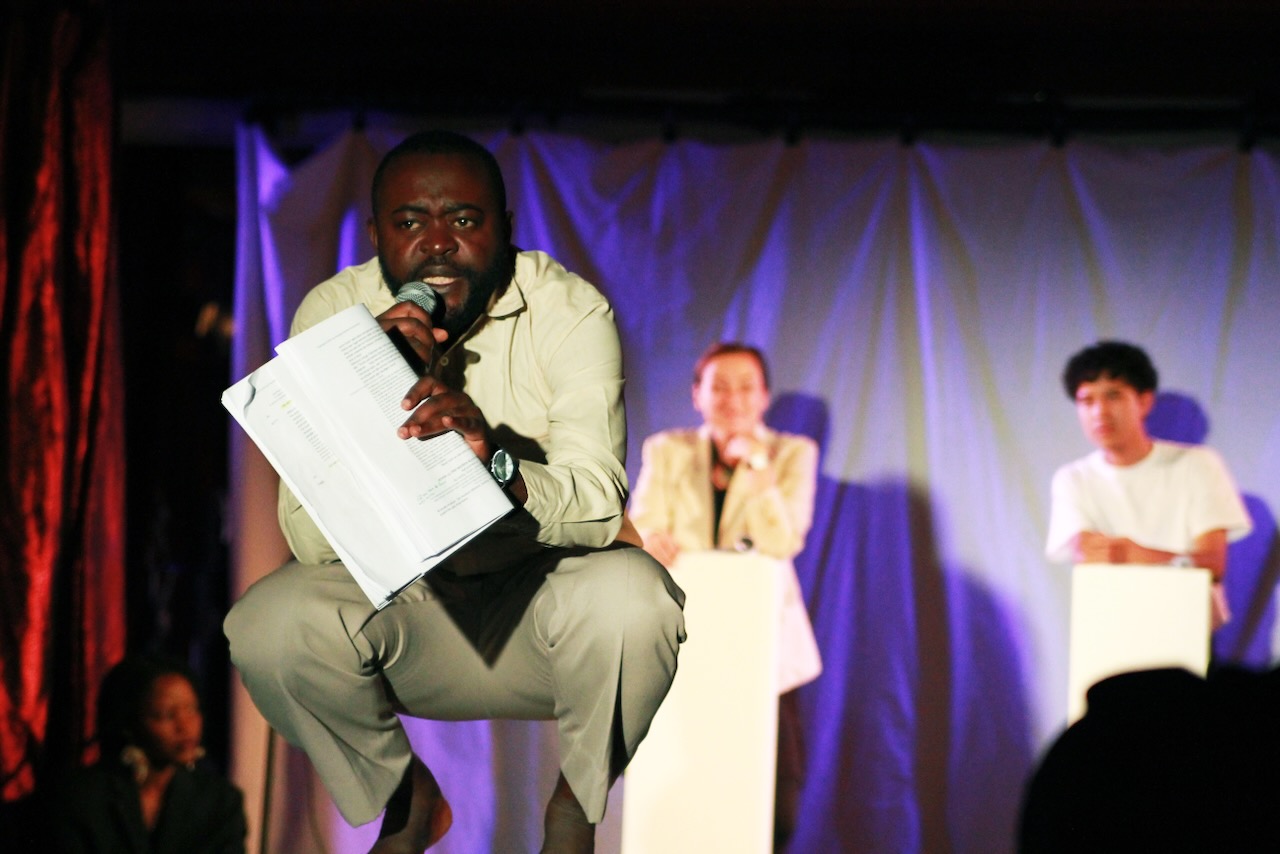
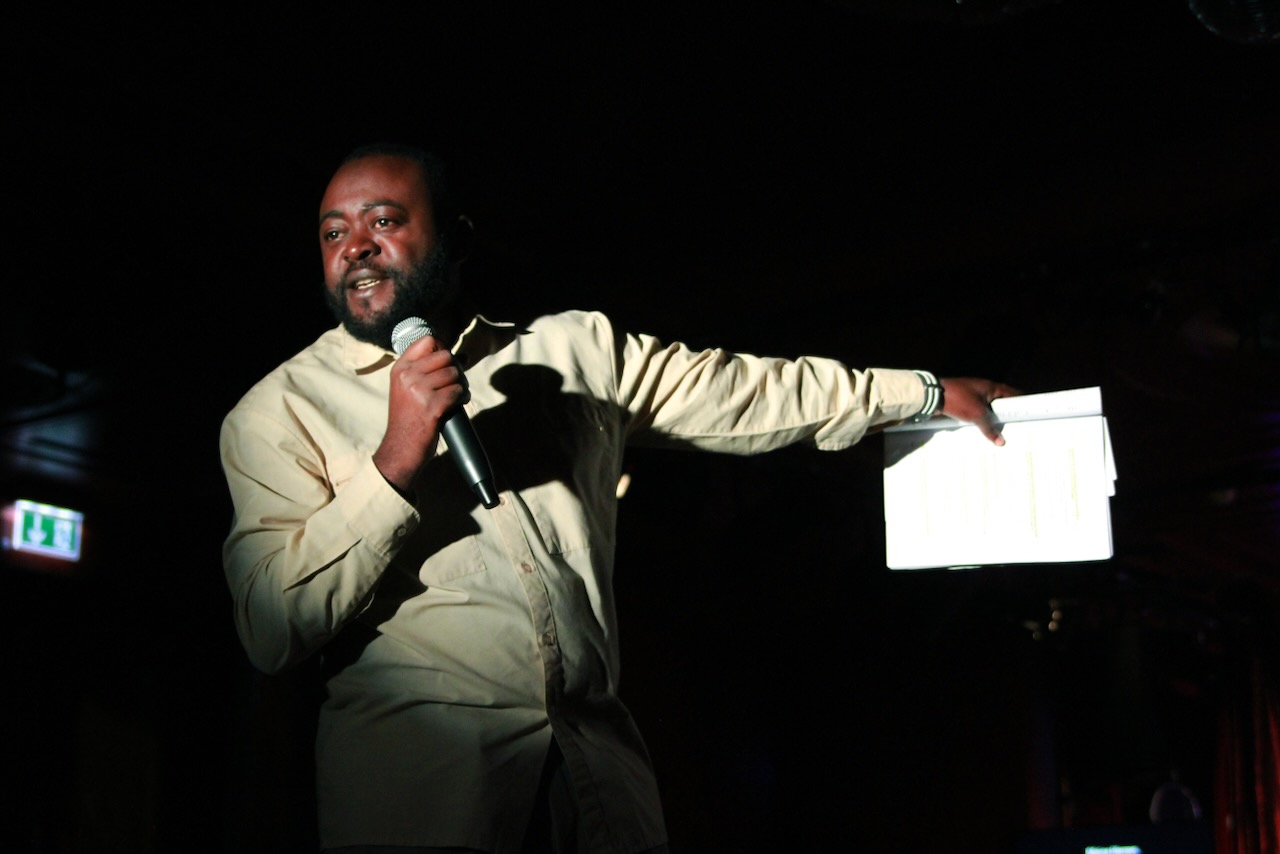
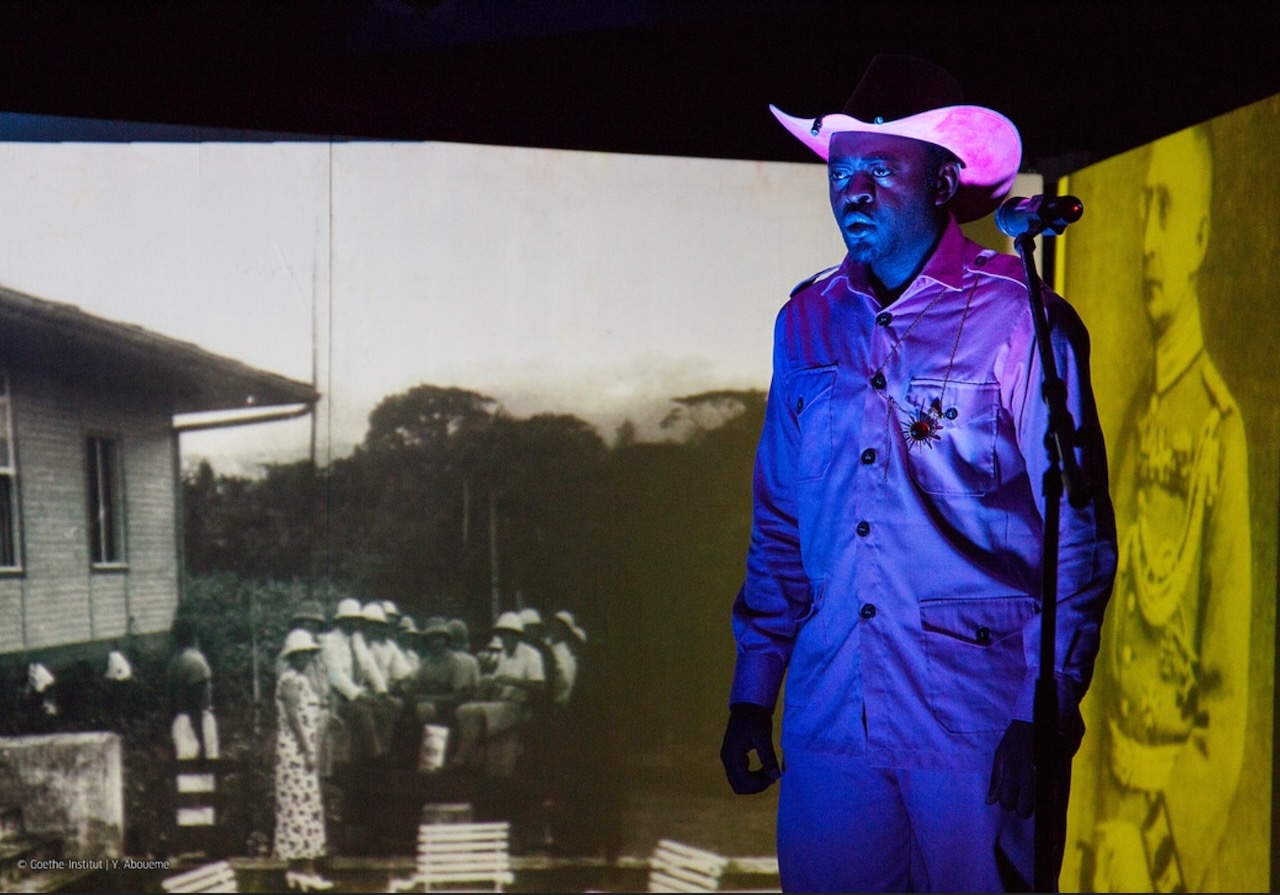
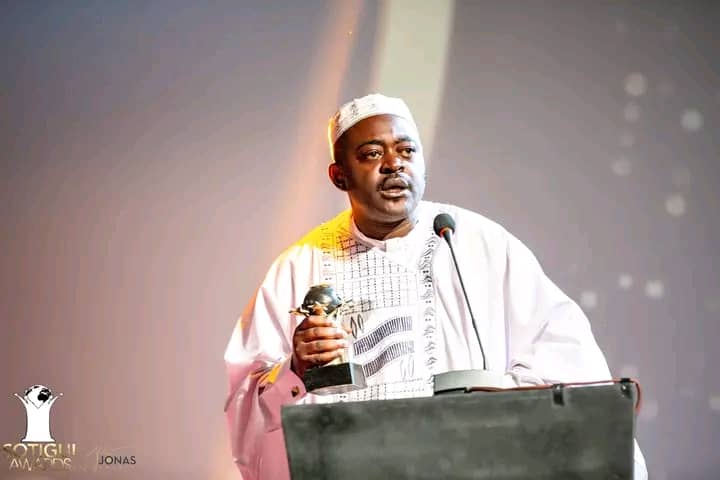
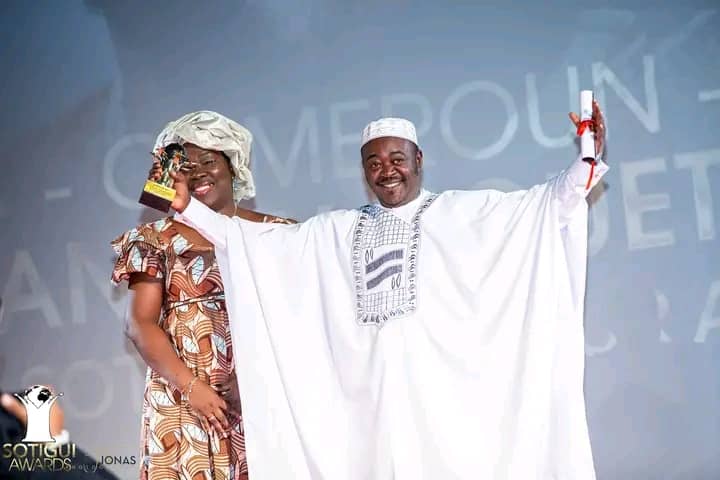
Research in Tanzania
After the great success of the RESTITUTION ART LAB, Paradise Garden will continue to be involved in various areas of the postcolonial debate. Because the restitution of African cultural assets is only one aspect of the necessary reappraisal. Rather, it is about the cancellation of historical debts, the removal of racist statues or also and especially the overcoming of "white privilege". In order to push this debate further and to fill it with life and facts, our team travelled to Tanzania (former German East Africa) for extensive research. Here are a few brief impressions: Explorers, traders and missionaries paved the way for colonialism. The church in Moshi was the first German church on site.
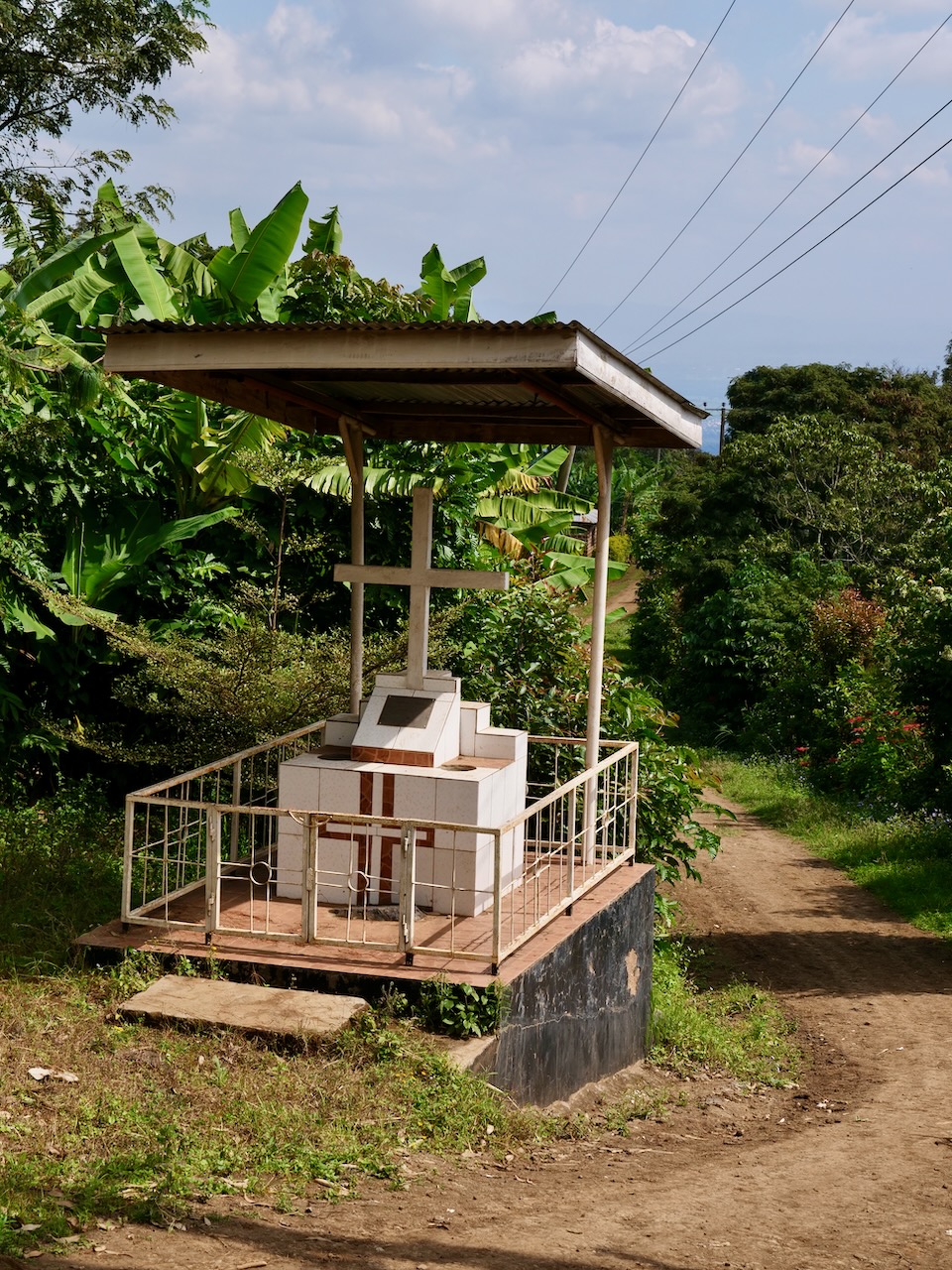
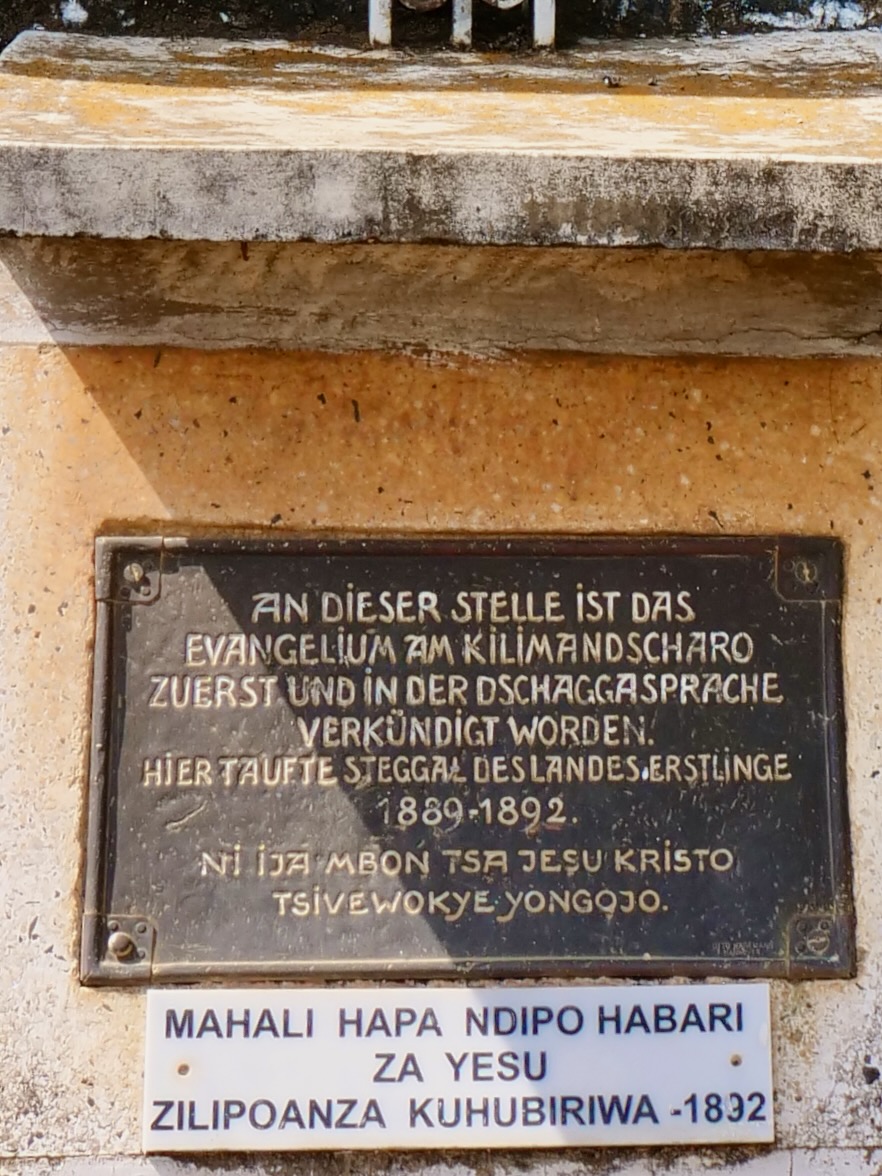
Moshi on Kilimanjaro - Manga Meli was hanged and his skull brought to Germany. He was the leader of the resistance against the German colonial rulers there. To this day, it is unclear where his skull is.
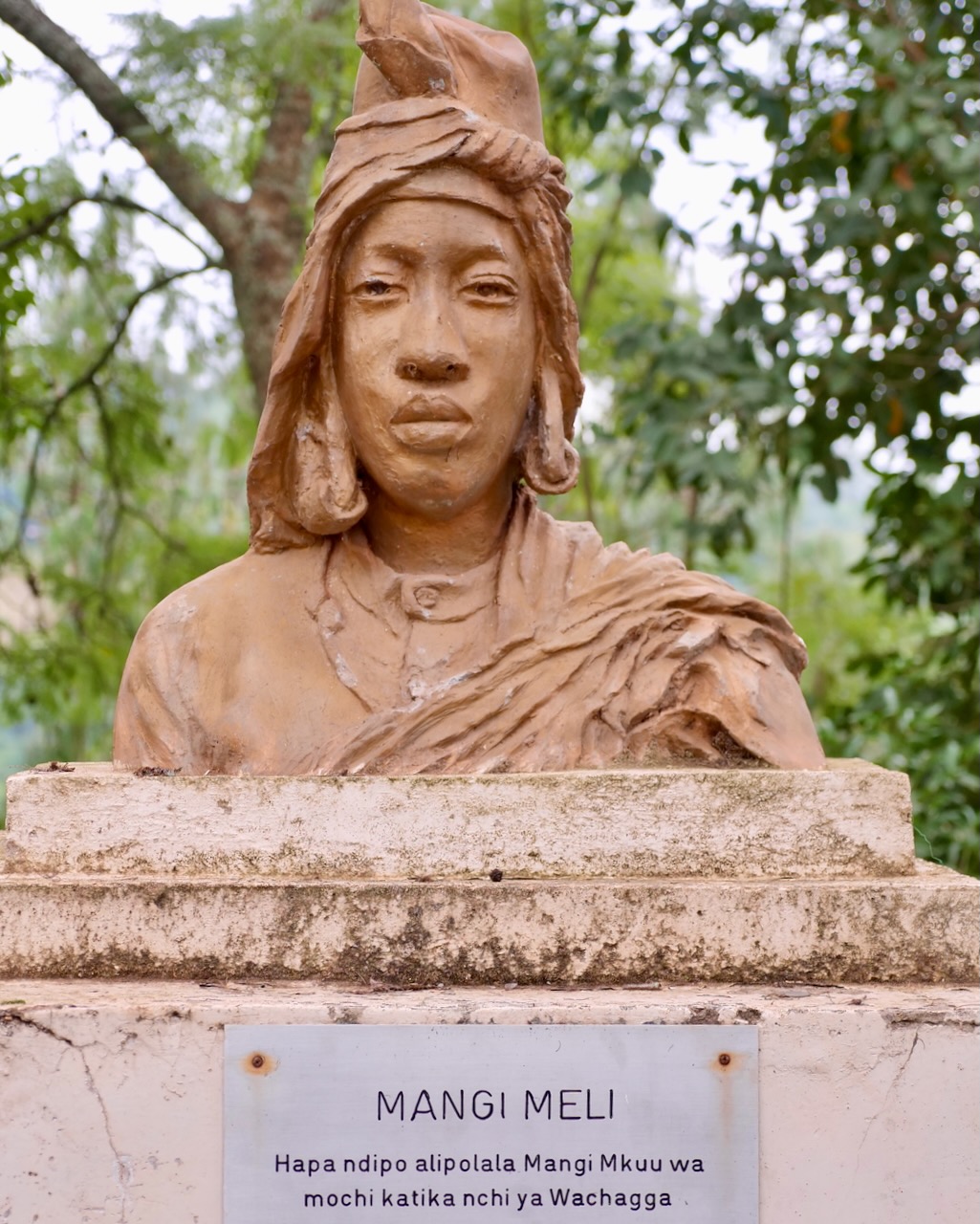
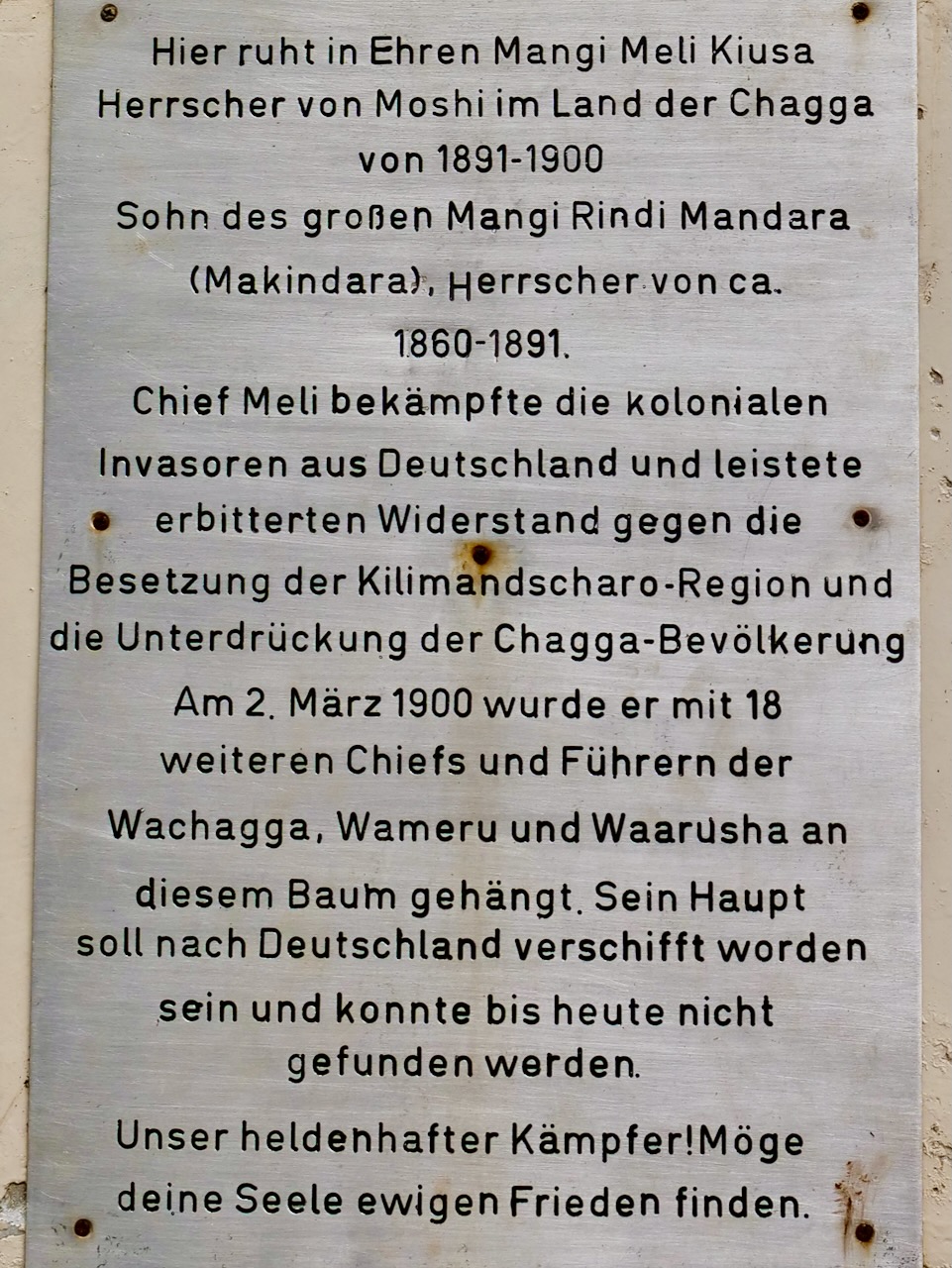
Im Interview mit dem Enkel Manga Melis: Inhalambi Amumba und Ichikael Malisa.
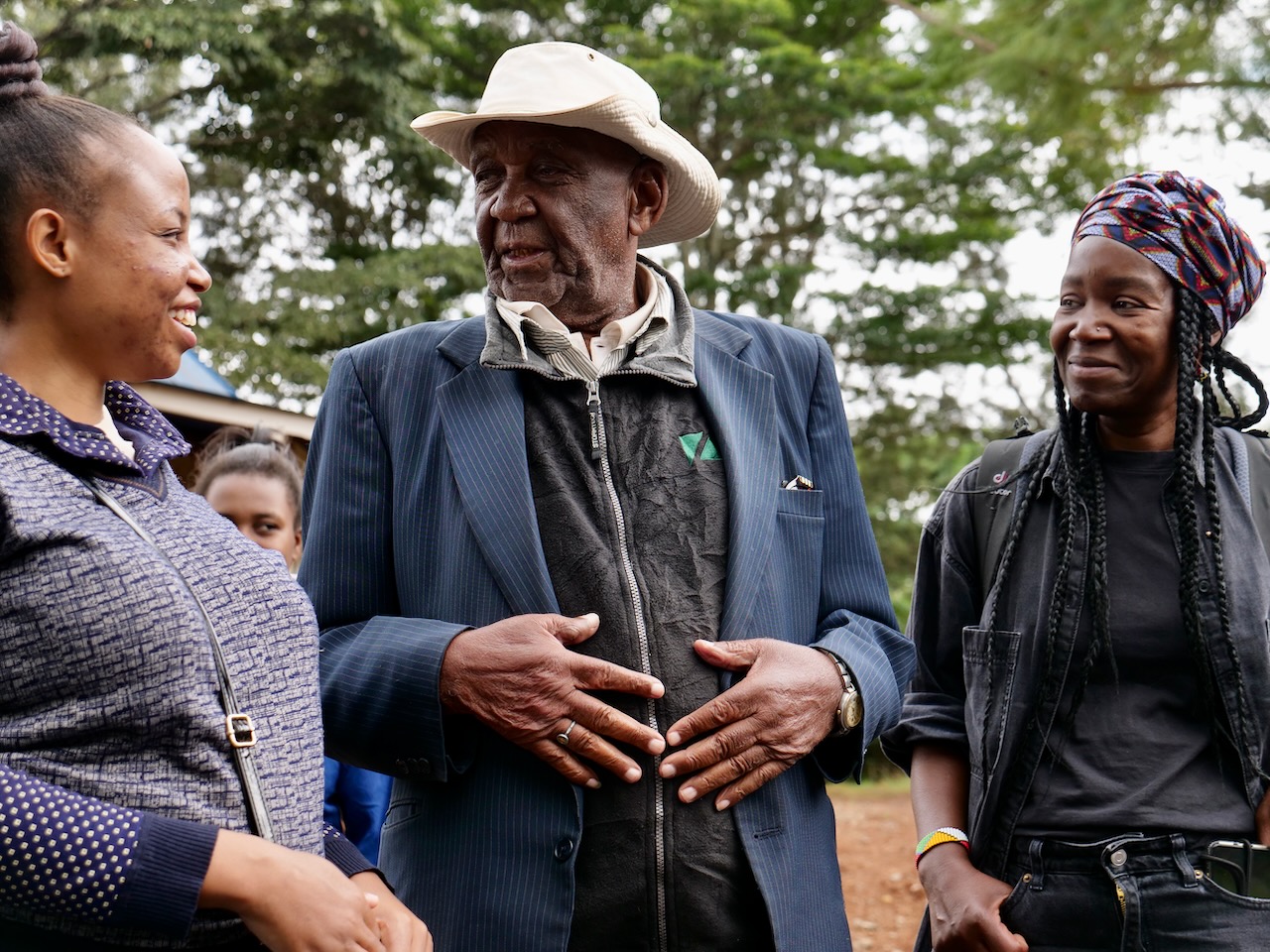
Bagamojo was the first administrative centre for German East Africa. Near the beach there is a cemetery for the German soldiers and administrations. A few metres away is the place where local insurgents were hanged; their names remain unnamed.
